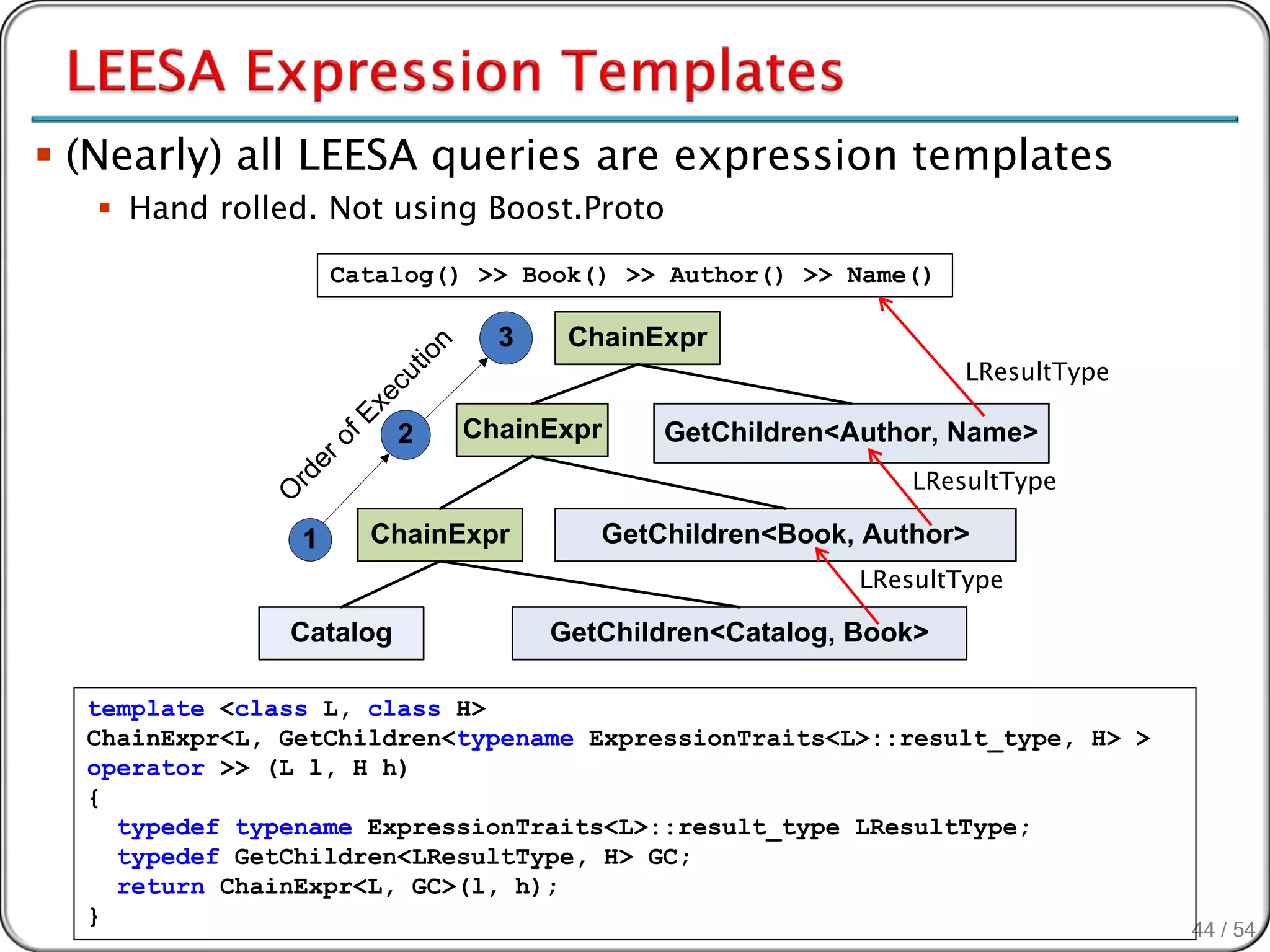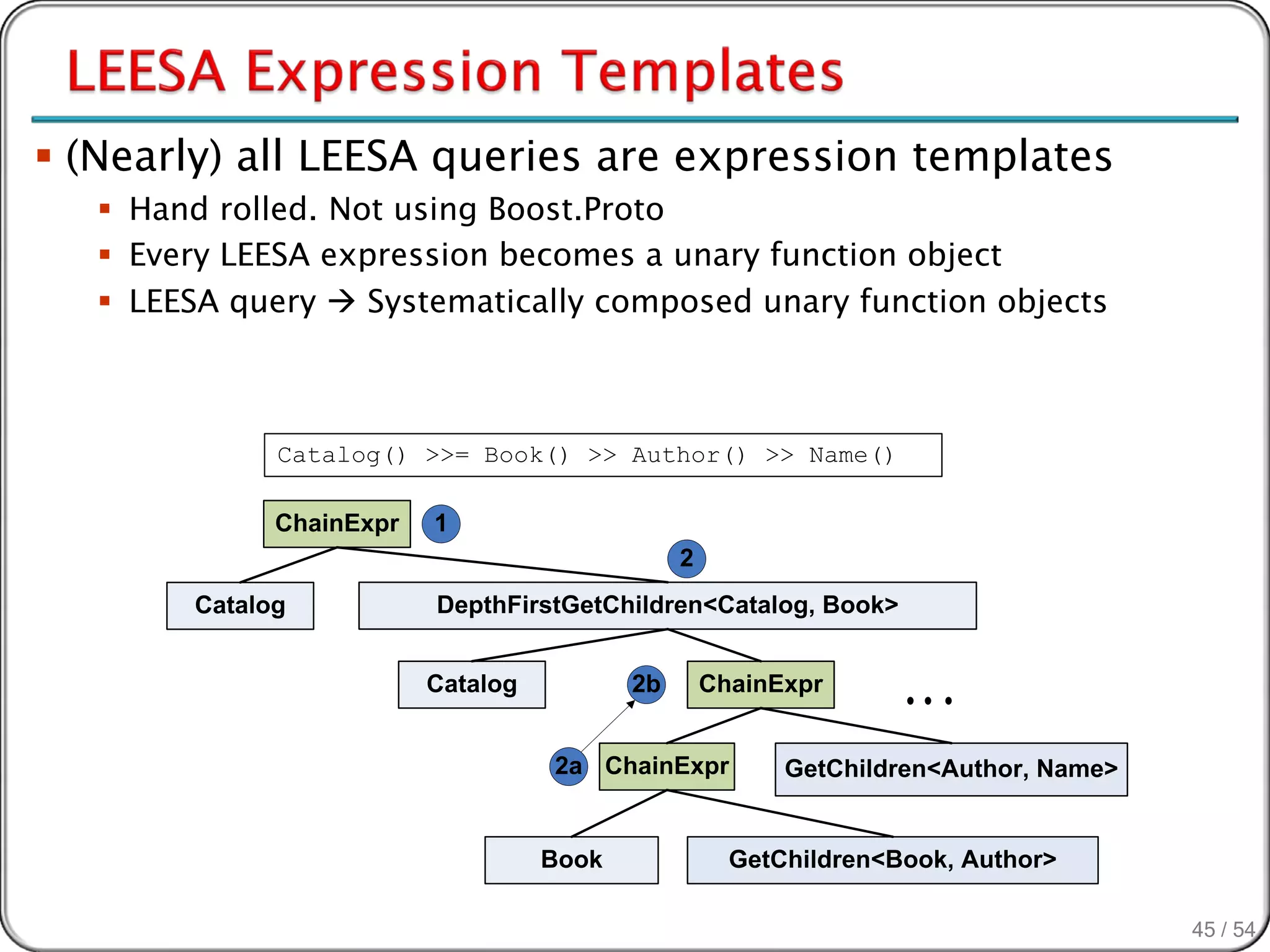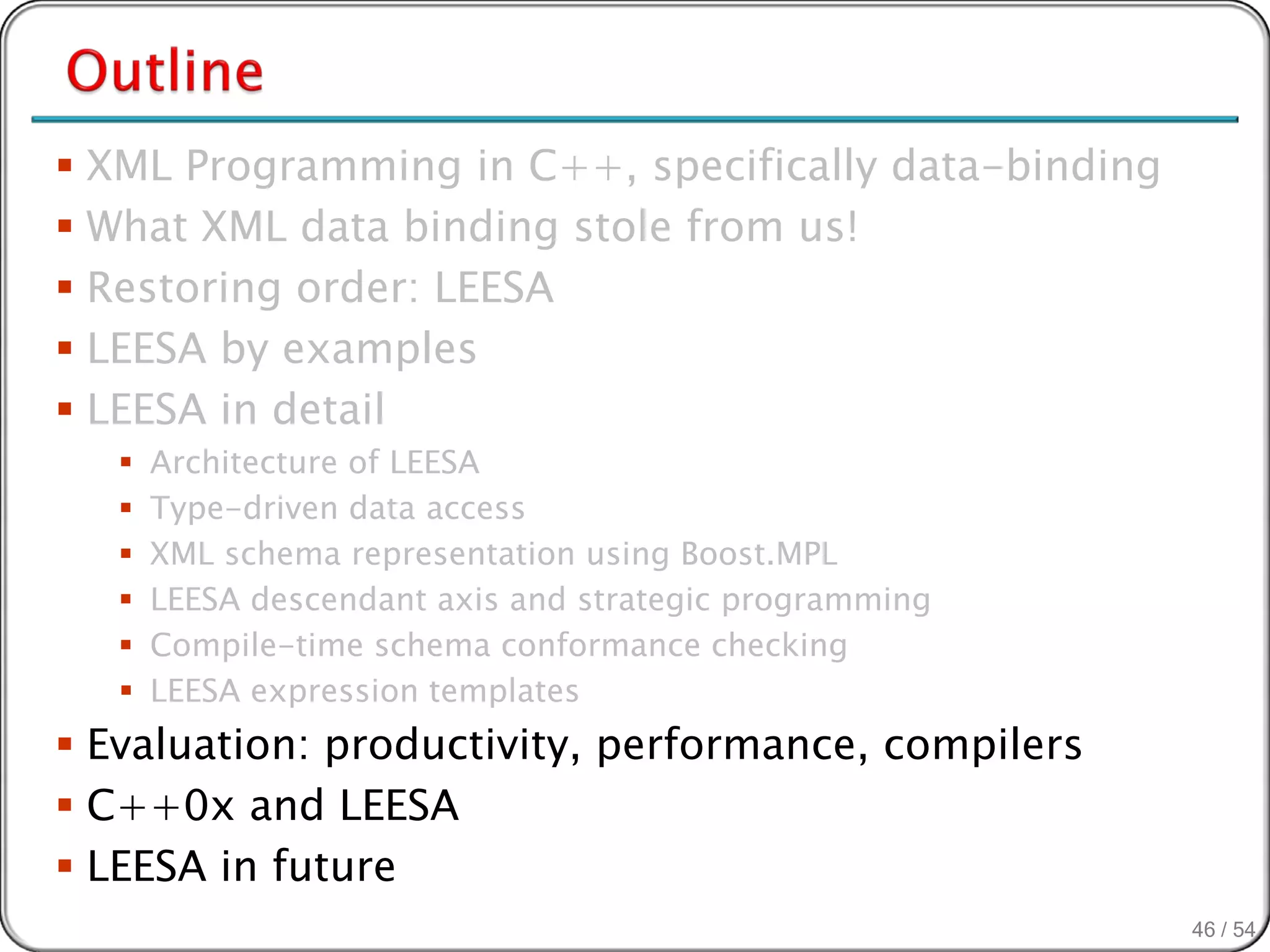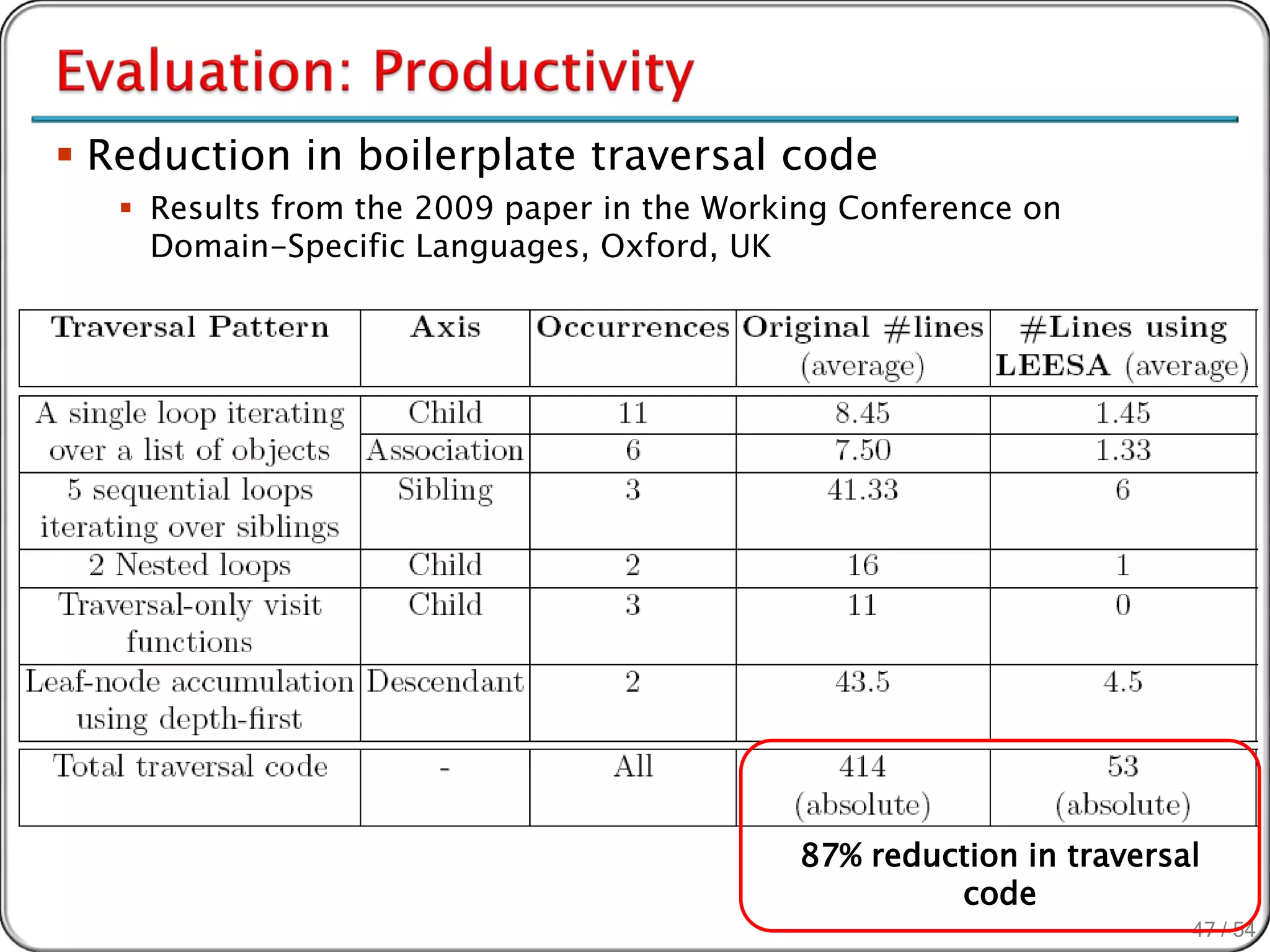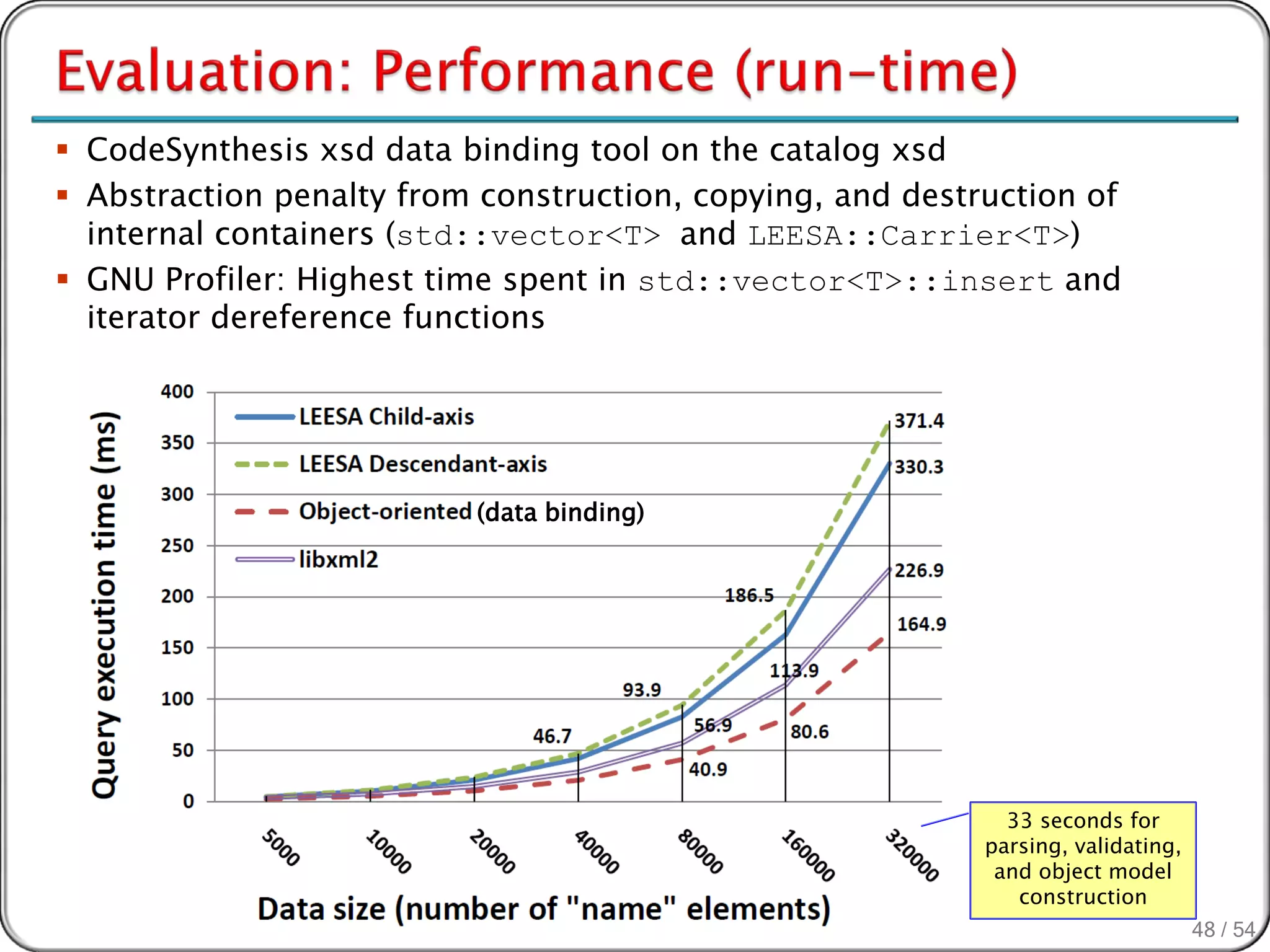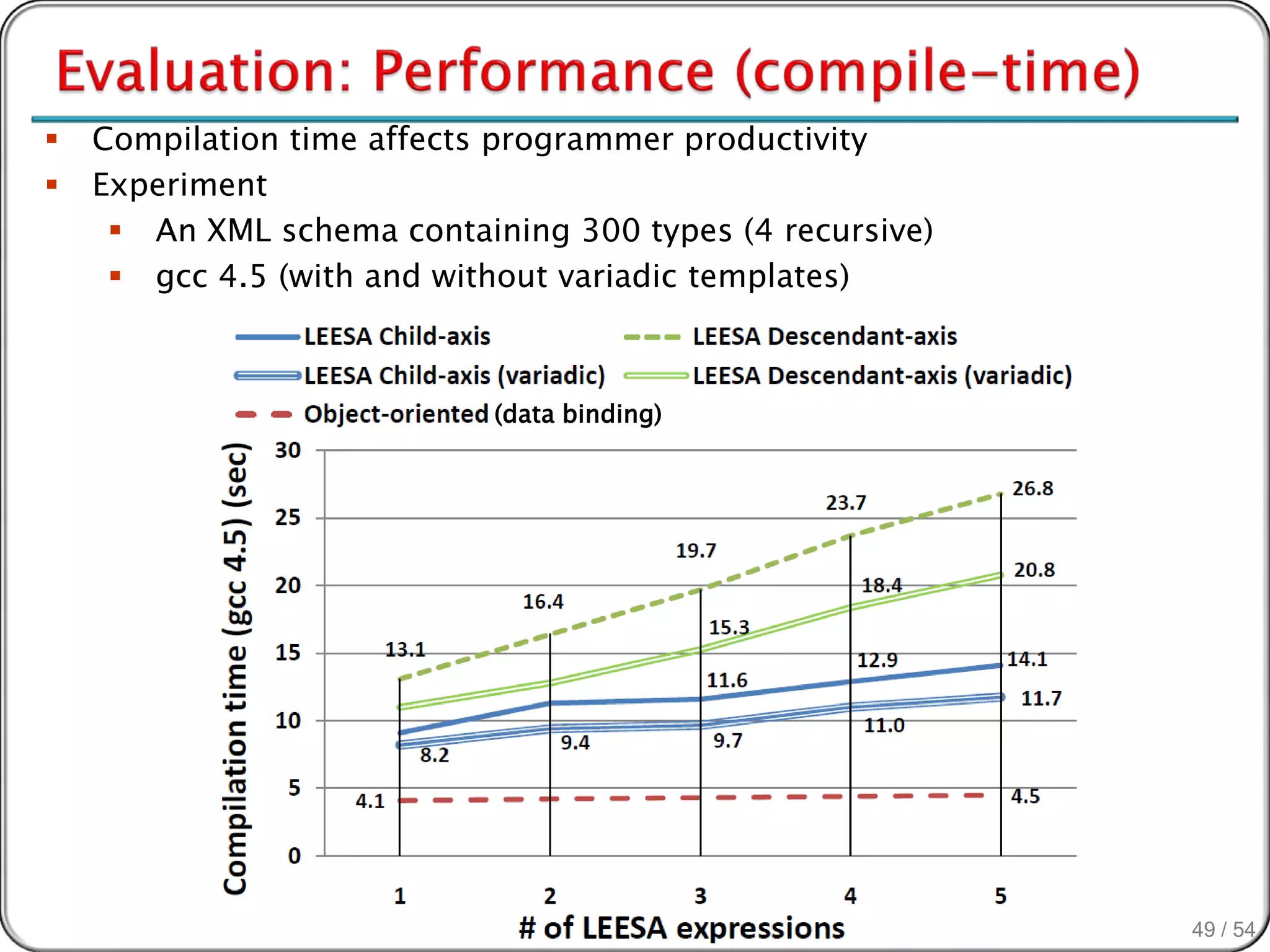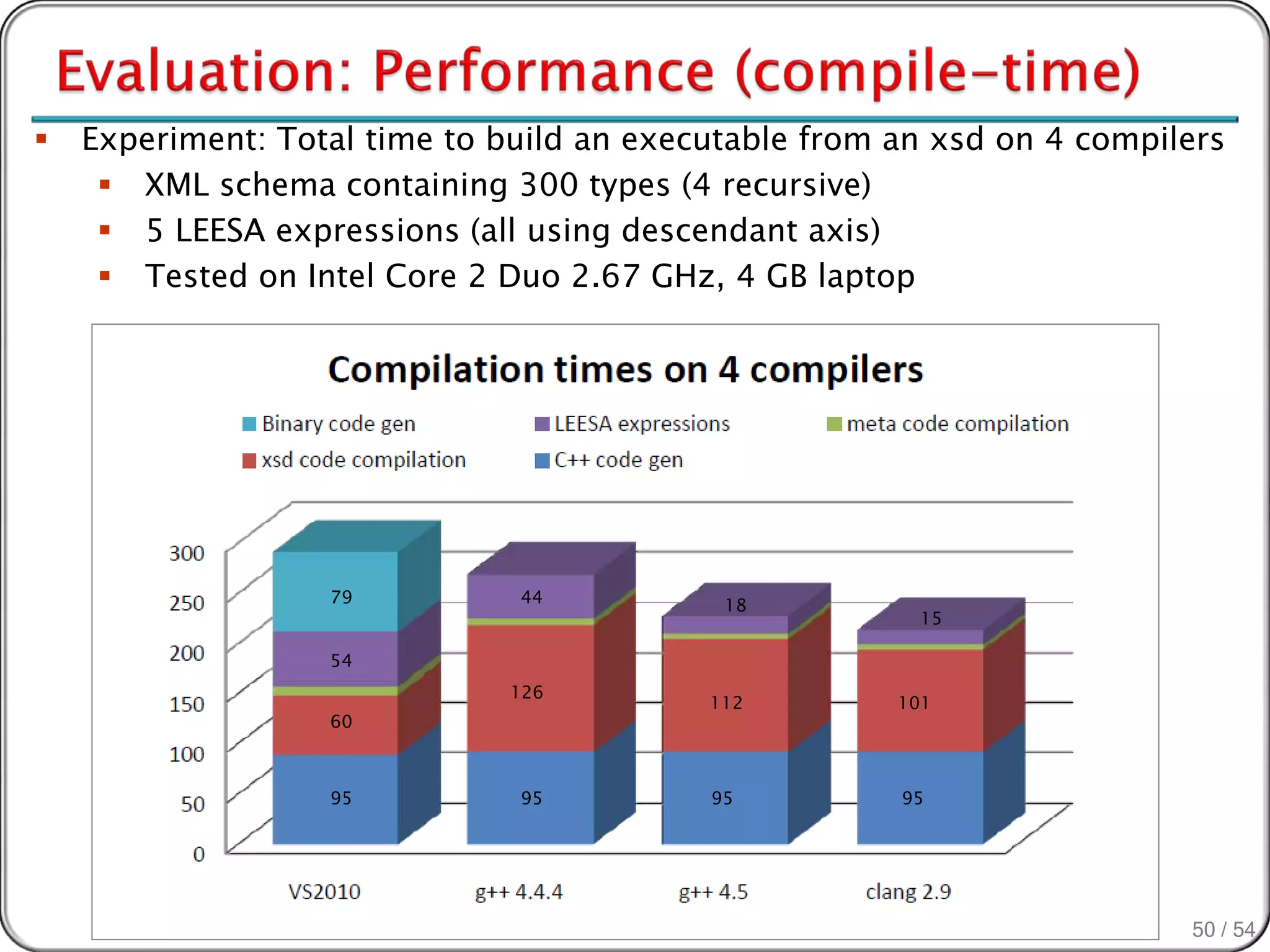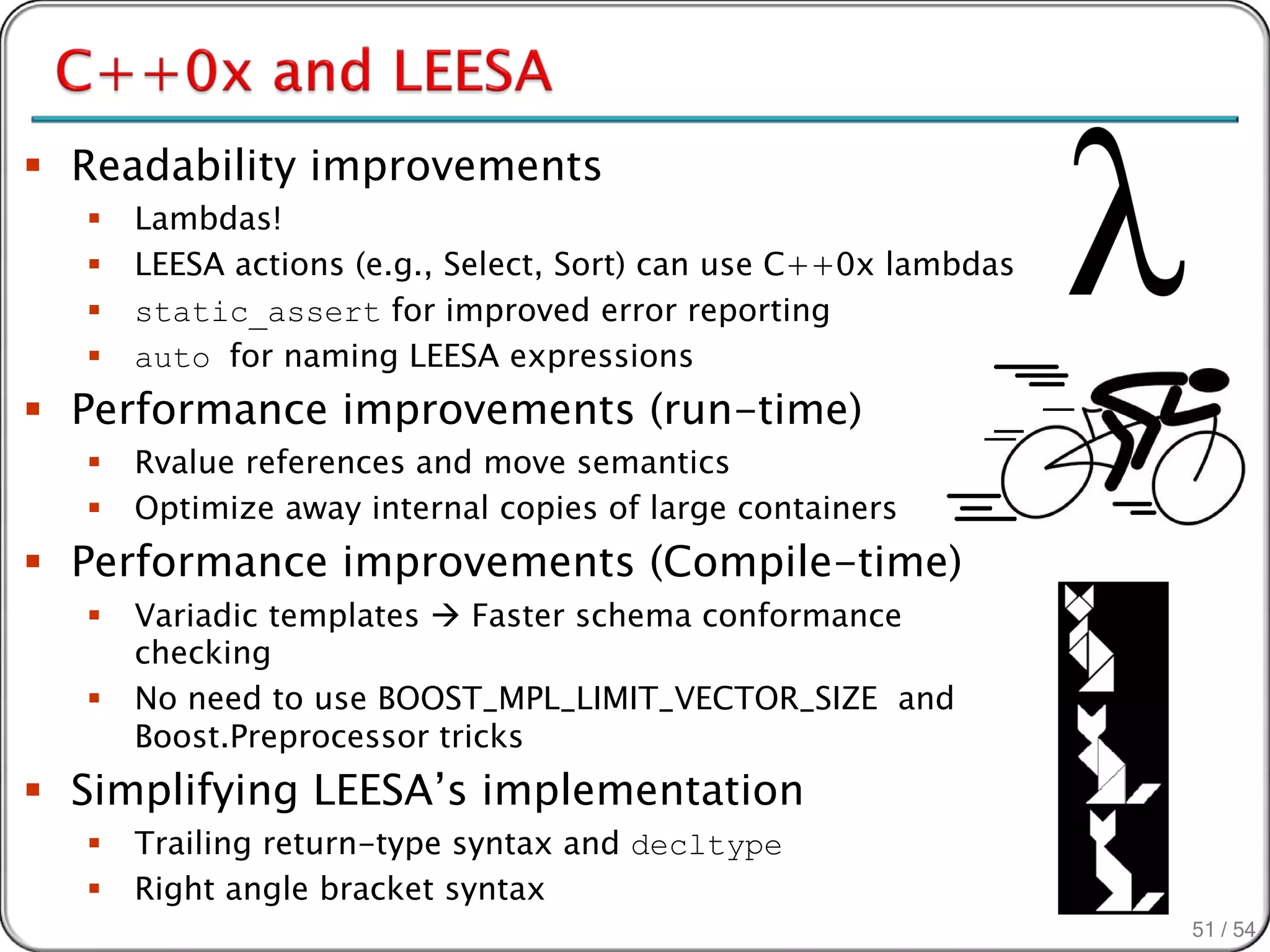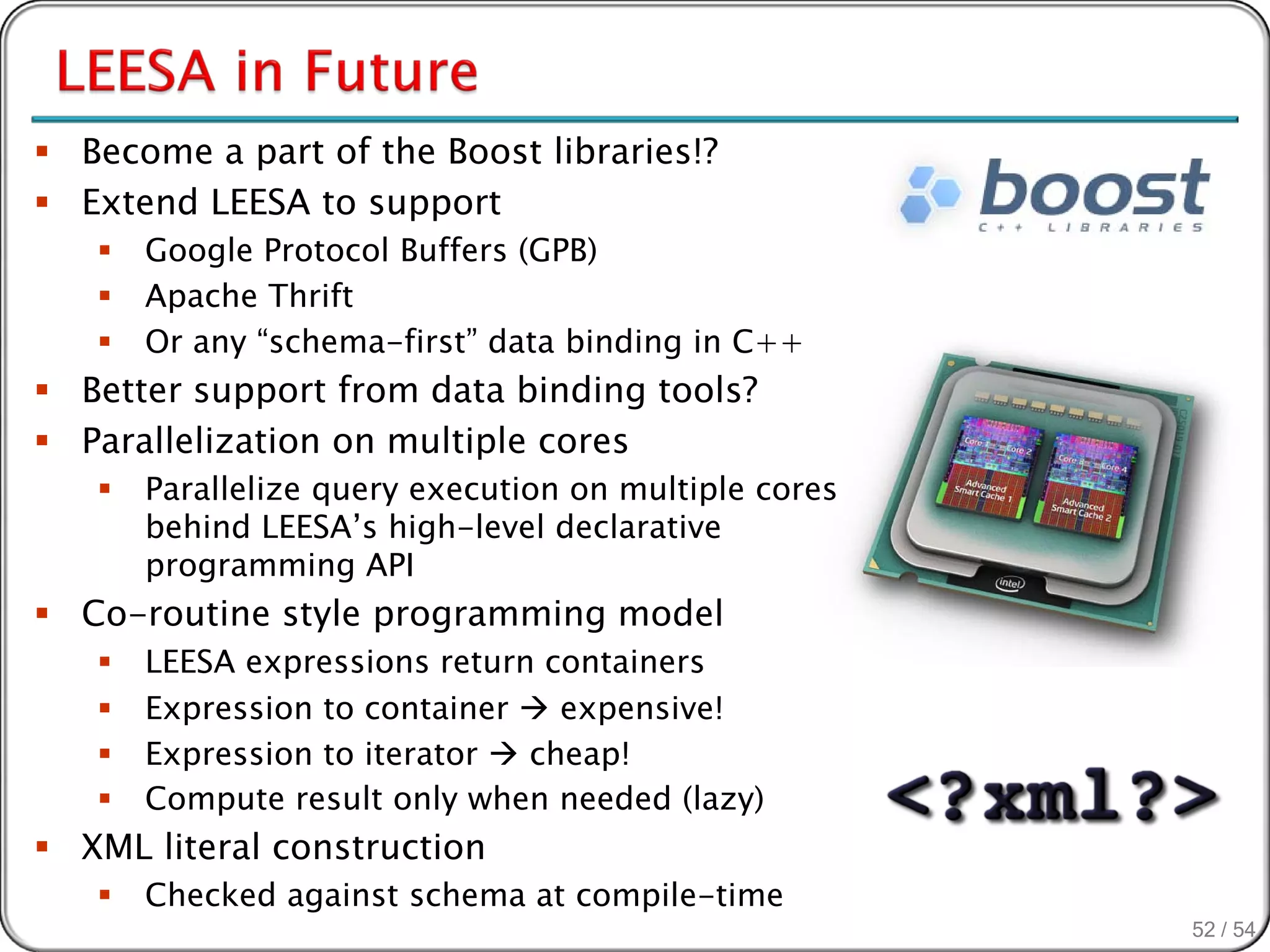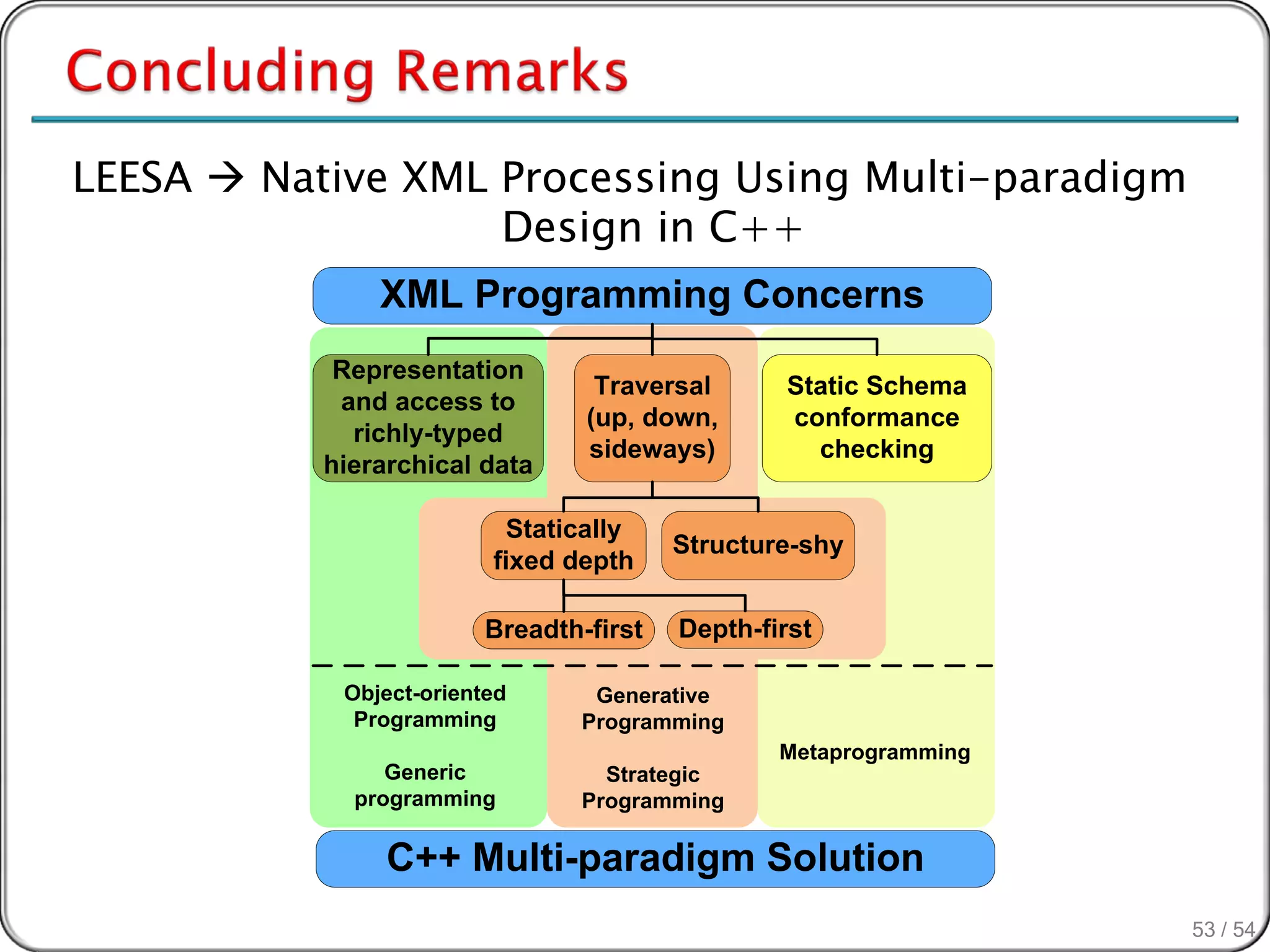The document discusses Leesa, a multi-paradigm design approach in C++ aimed at improving XML processing through type-driven data access and schema conformance. It highlights the advantages of XML data binding while critiquing its limitations, such as loss of expressive power and succinctness. Leesa aims to restore these qualities by allowing for efficient, statically typed execution and user-defined filters for XML data manipulation.

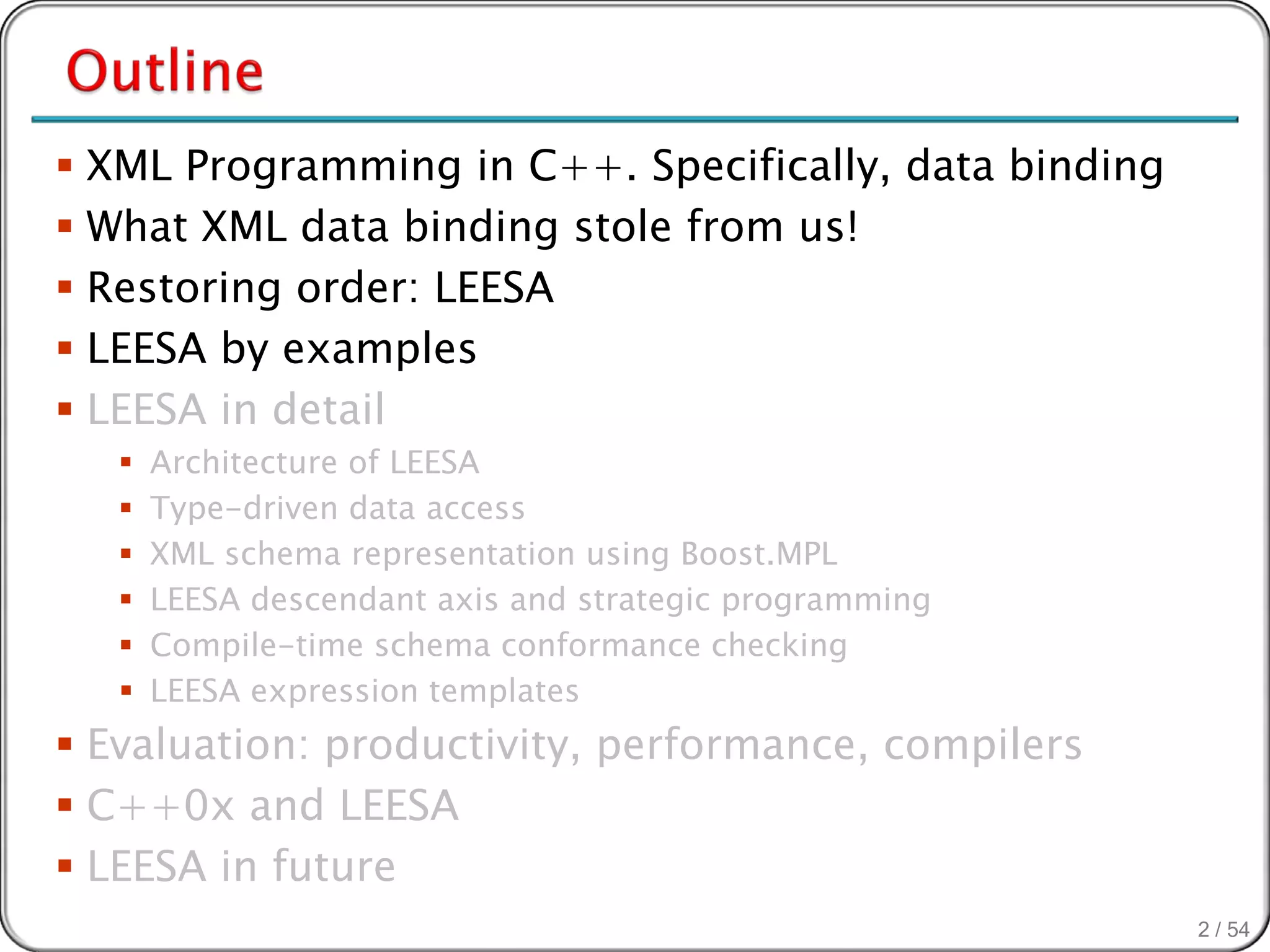
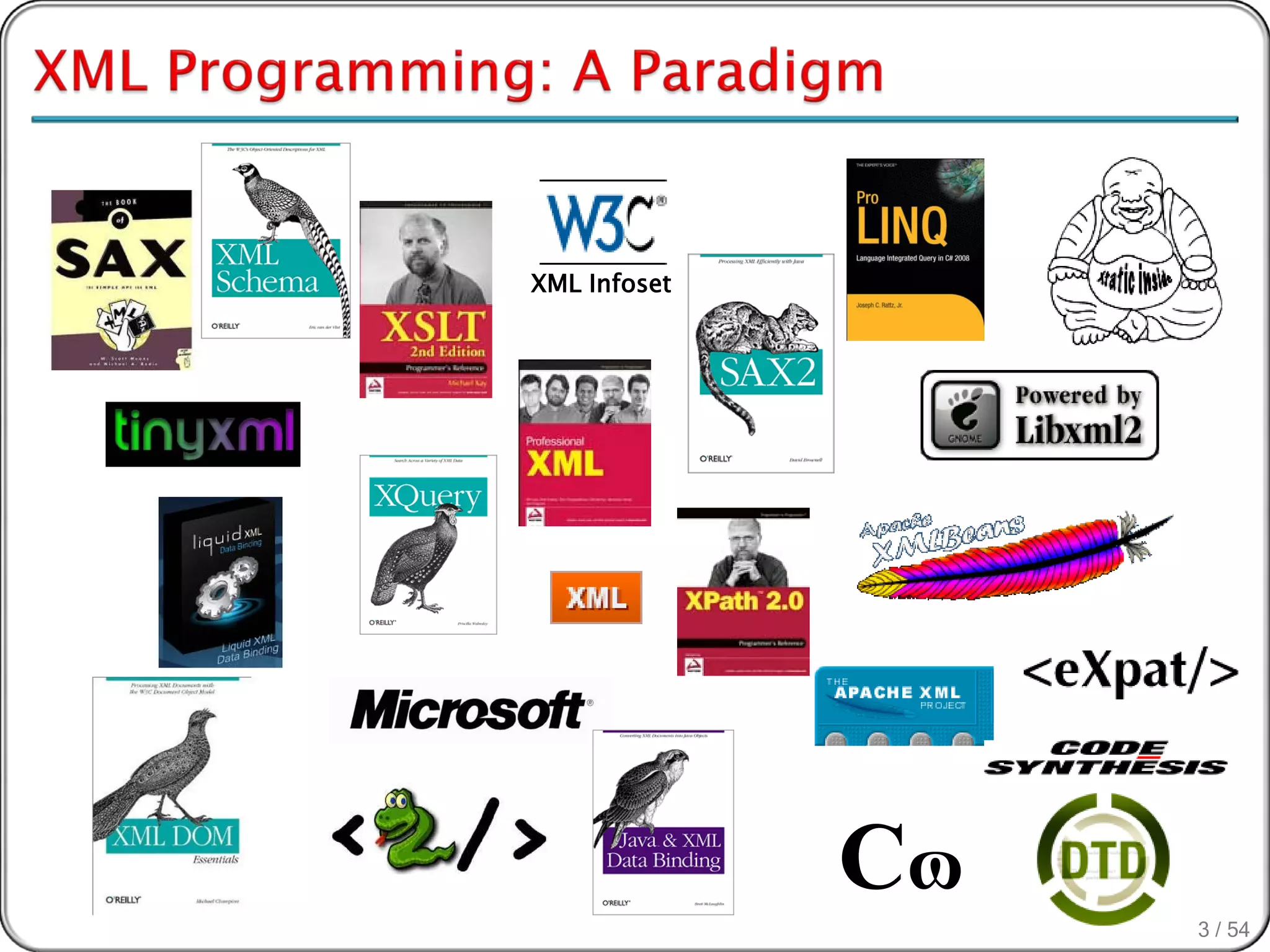
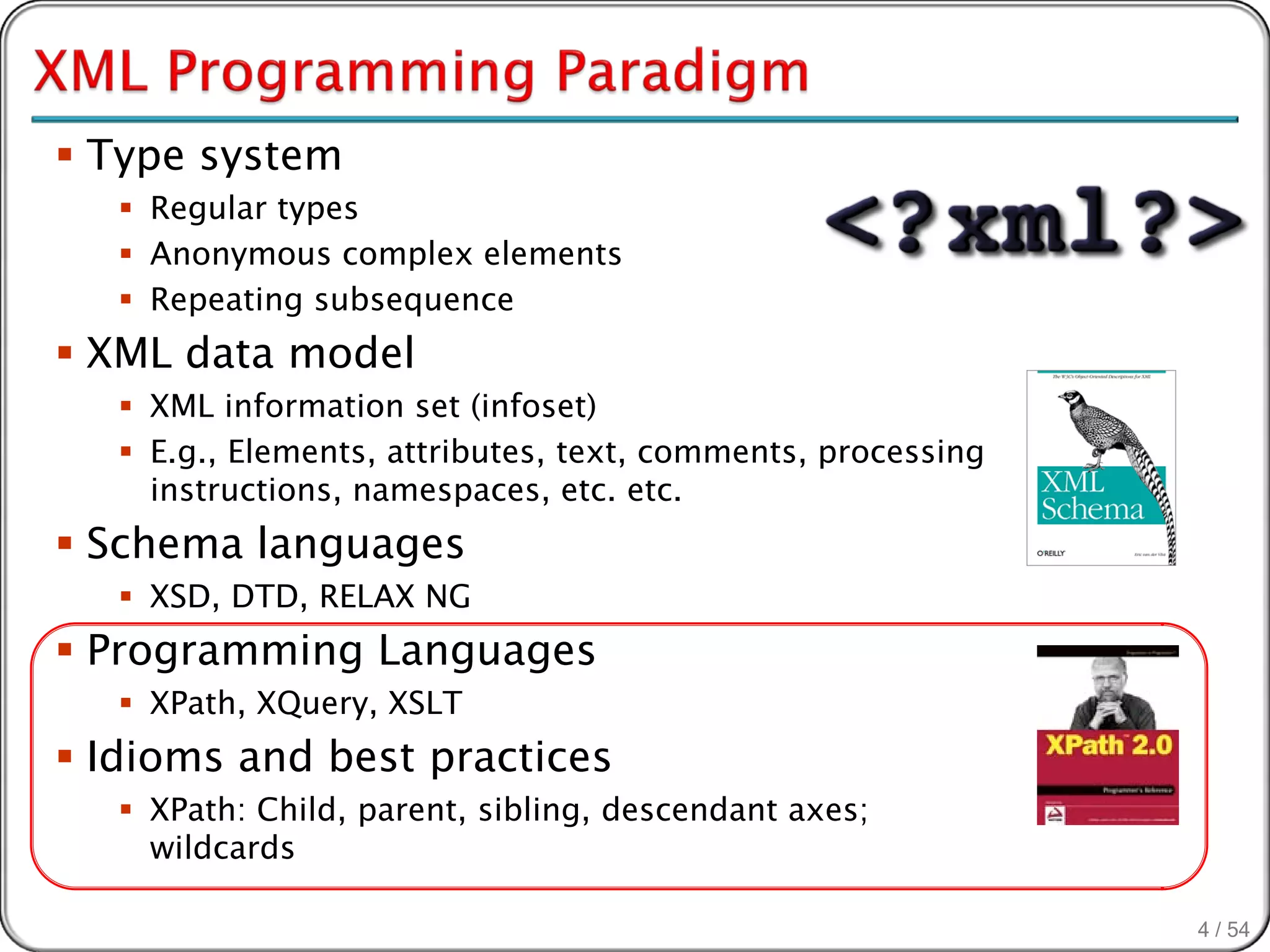
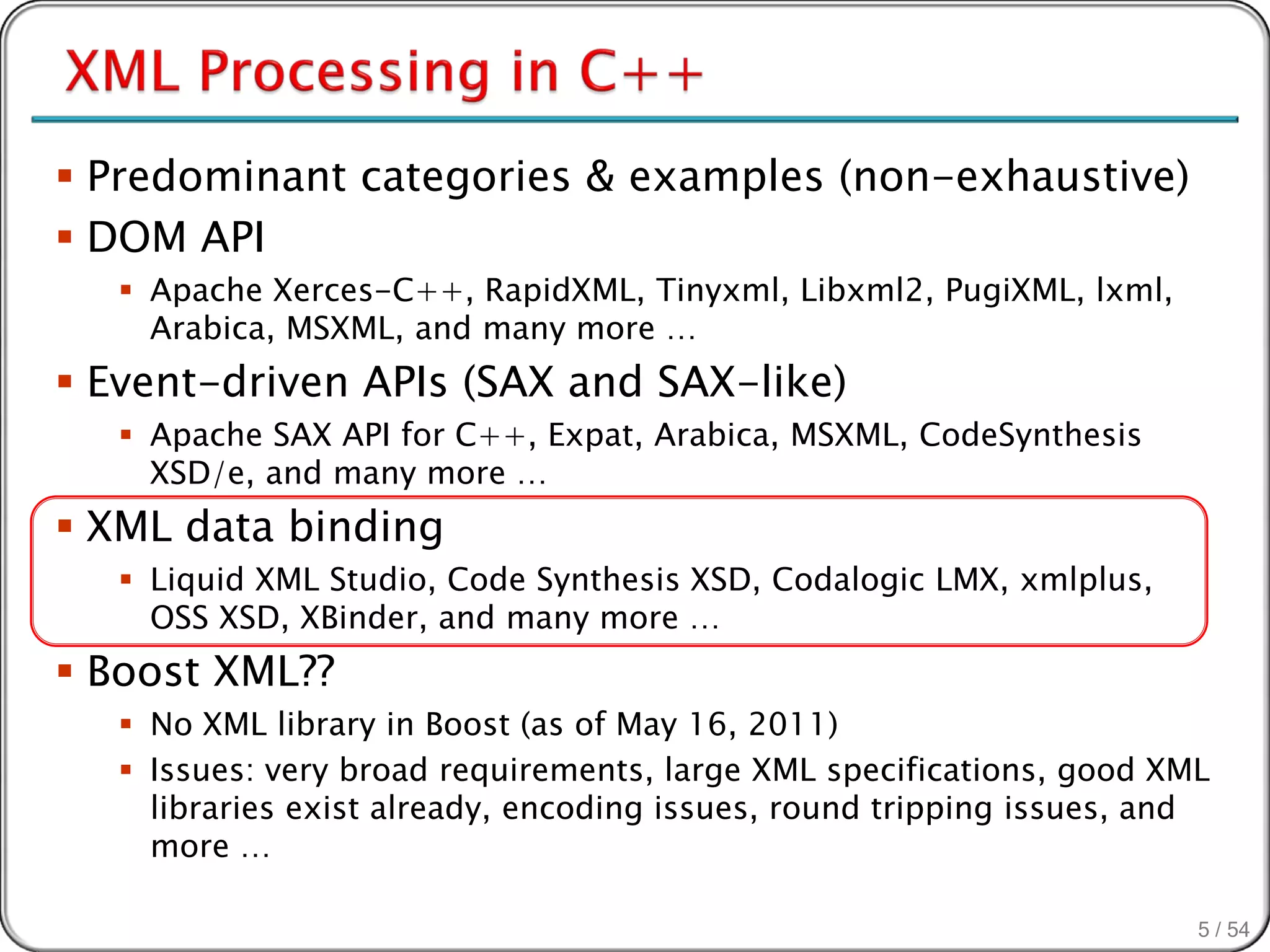
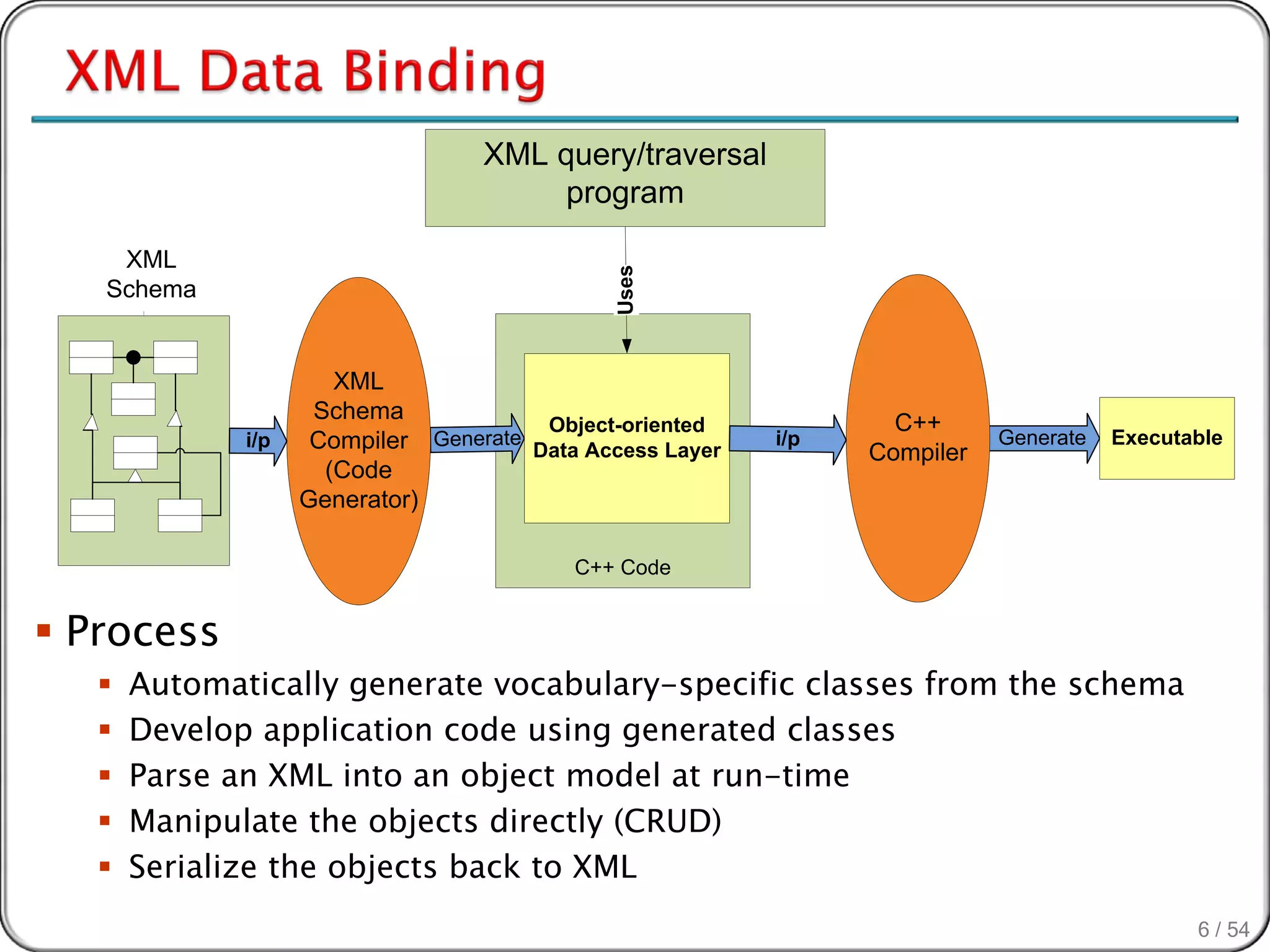
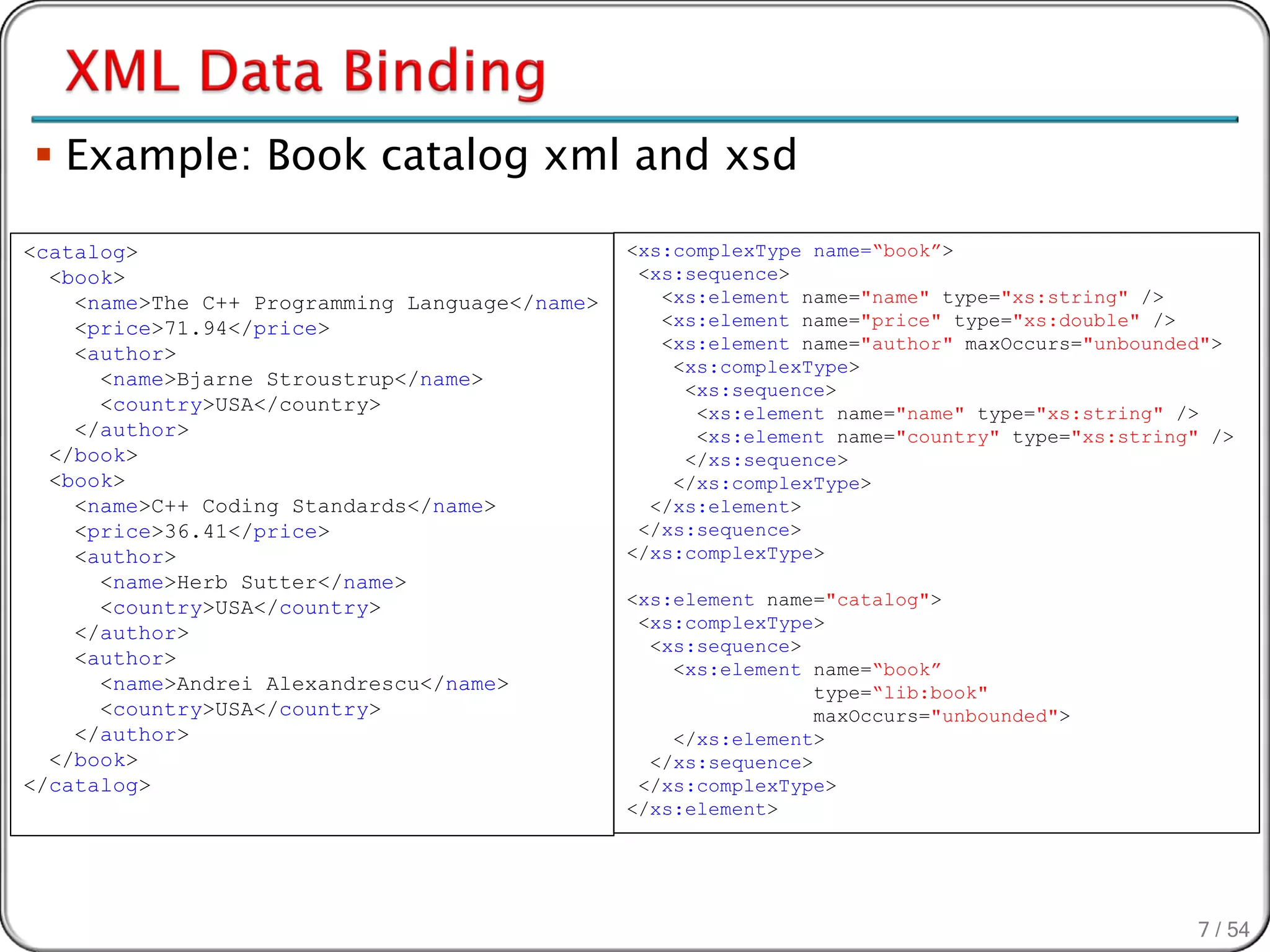
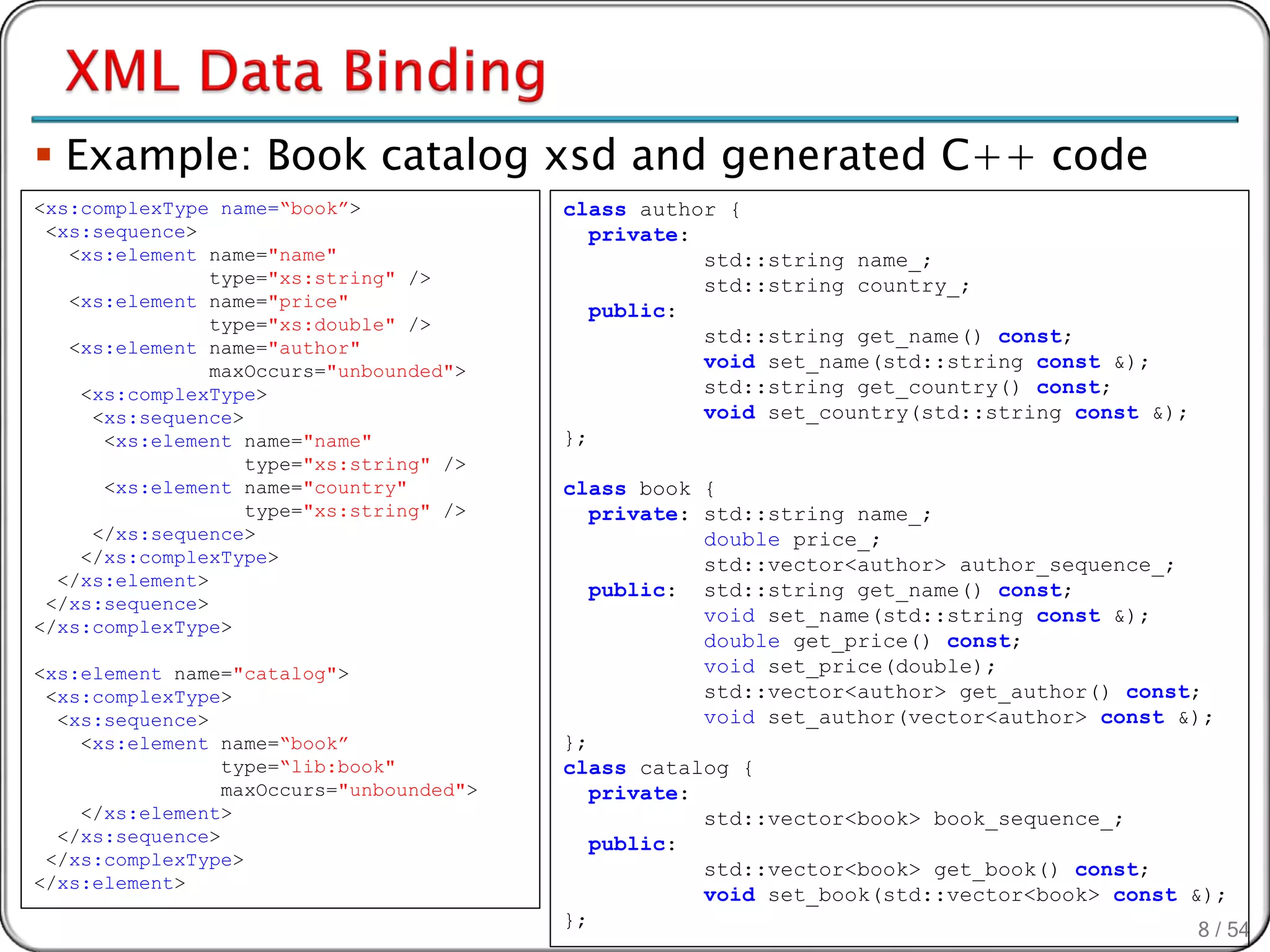
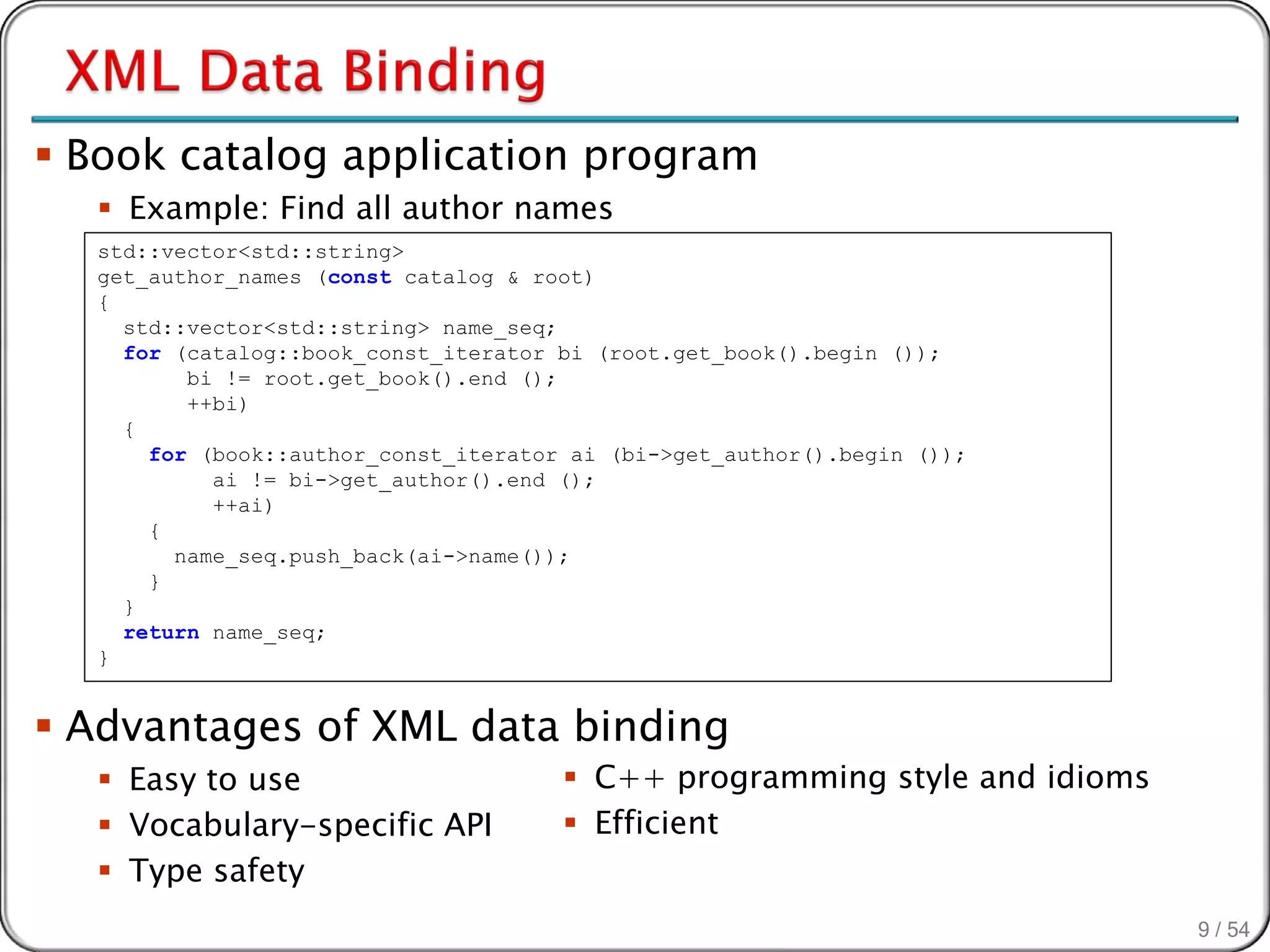
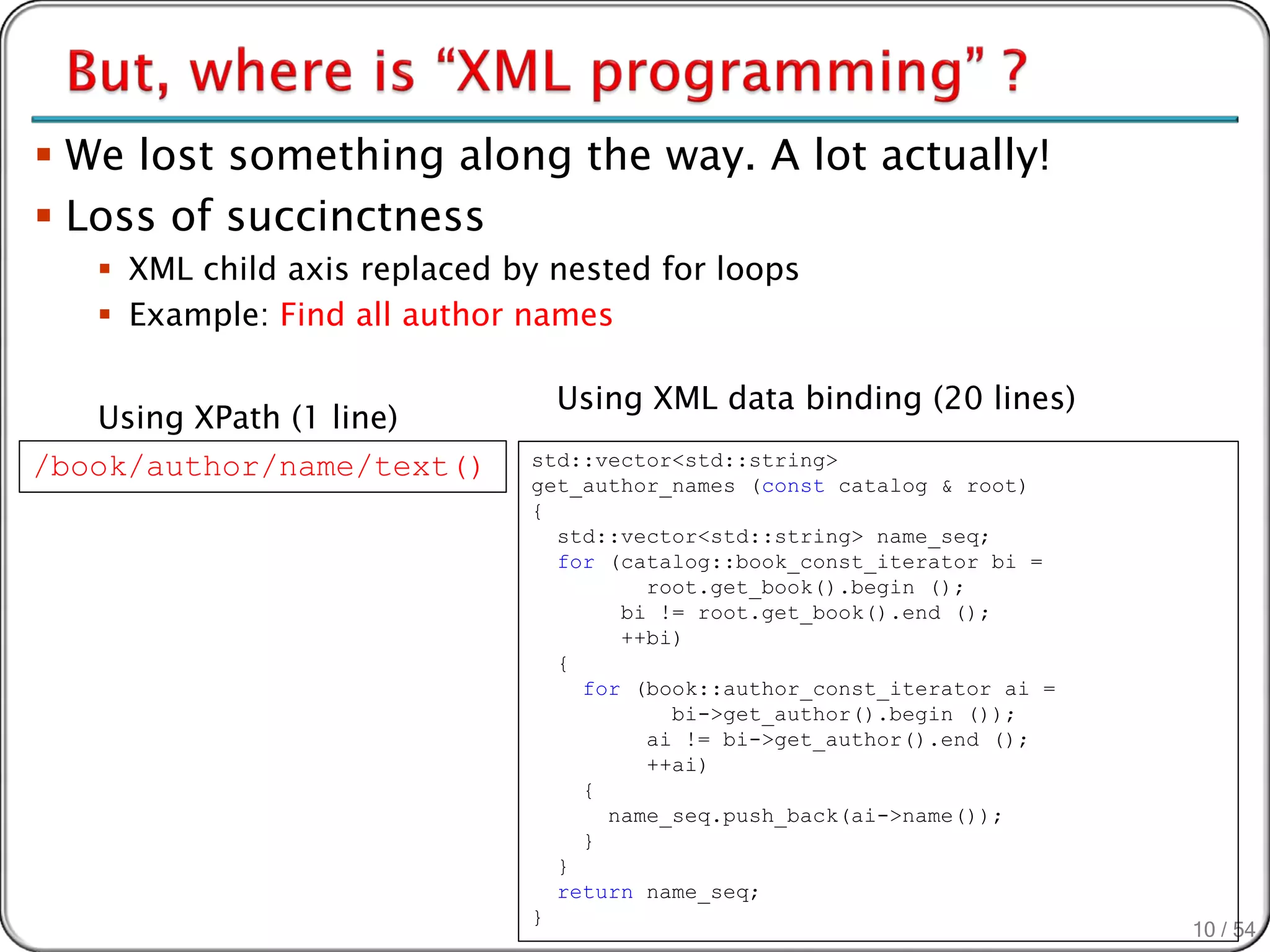
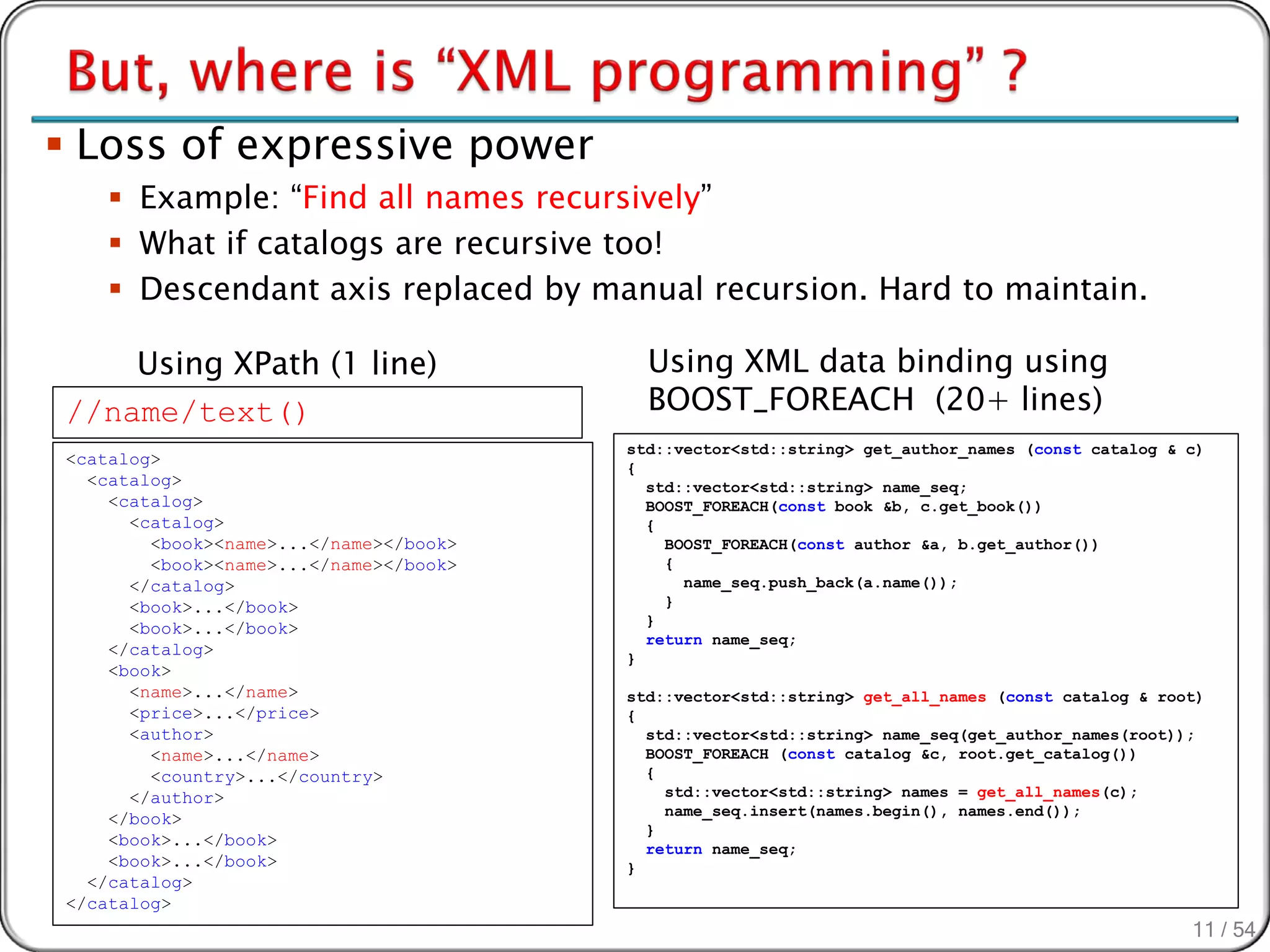
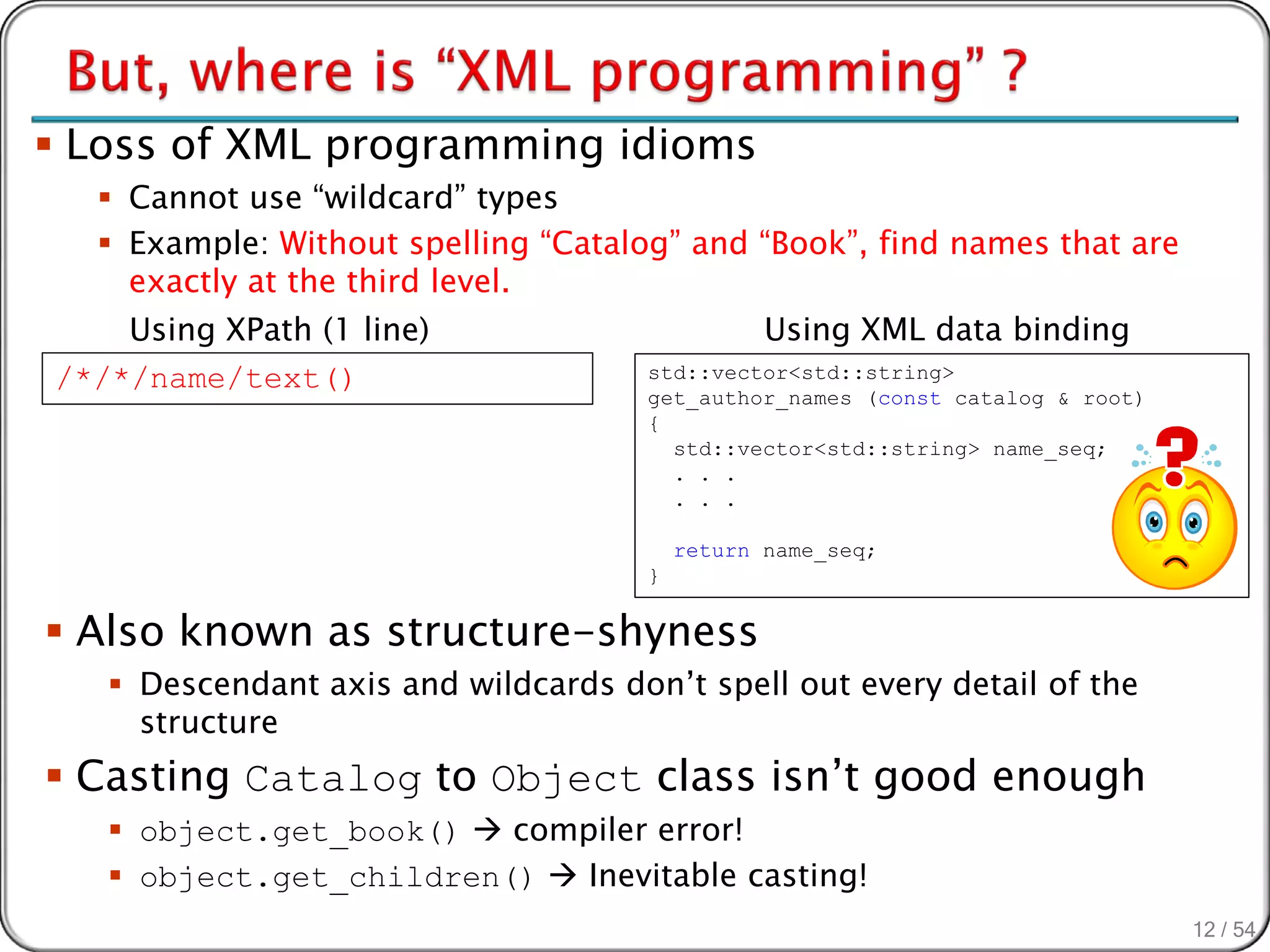
![ Hybrid approach: Pass XPath expression as a string
Using XML data binding + XPath No universal support
Boilerplate setup code
DOMElement* root (static_cast<DOMElement*> (c._node ()));
DOMDocument* doc (root->getOwnerDocument ());
DOM, XML namespaces,
dom::auto_ptr<DOMXPathExpression> expr (
doc->createExpression (
xml::string ("//author").c_str (),
resolver.get ())); Memory management
dom::auto_ptr<DOMXPathResult> r (
expr->evaluate (
Casting is inevitable
Look and feel of two
doc, DOMXPathResult::ITERATOR_RESULT_TYPE, 0));
APIs is (vastly) different
while (r->iterateNext ())
{
DOMNode* n (r->getNodeValue ());
author* a ( iterateNext() Vs.
static_cast<author*> (
n->getUserData (dom::tree_node_key))); begin()/end()
}
cout << "Name : " << a->get_name () << endl;
Can’t use predicates on
data outside xml
E.g. Find authors of highest
selling books
“/book[?condition?]/author/name”
13 / 54](https://image.slidesharecdn.com/leesa-boostcon-111130135930-phpapp01/75/Native-XML-processing-in-C-BoostCon-11-13-2048.jpg)
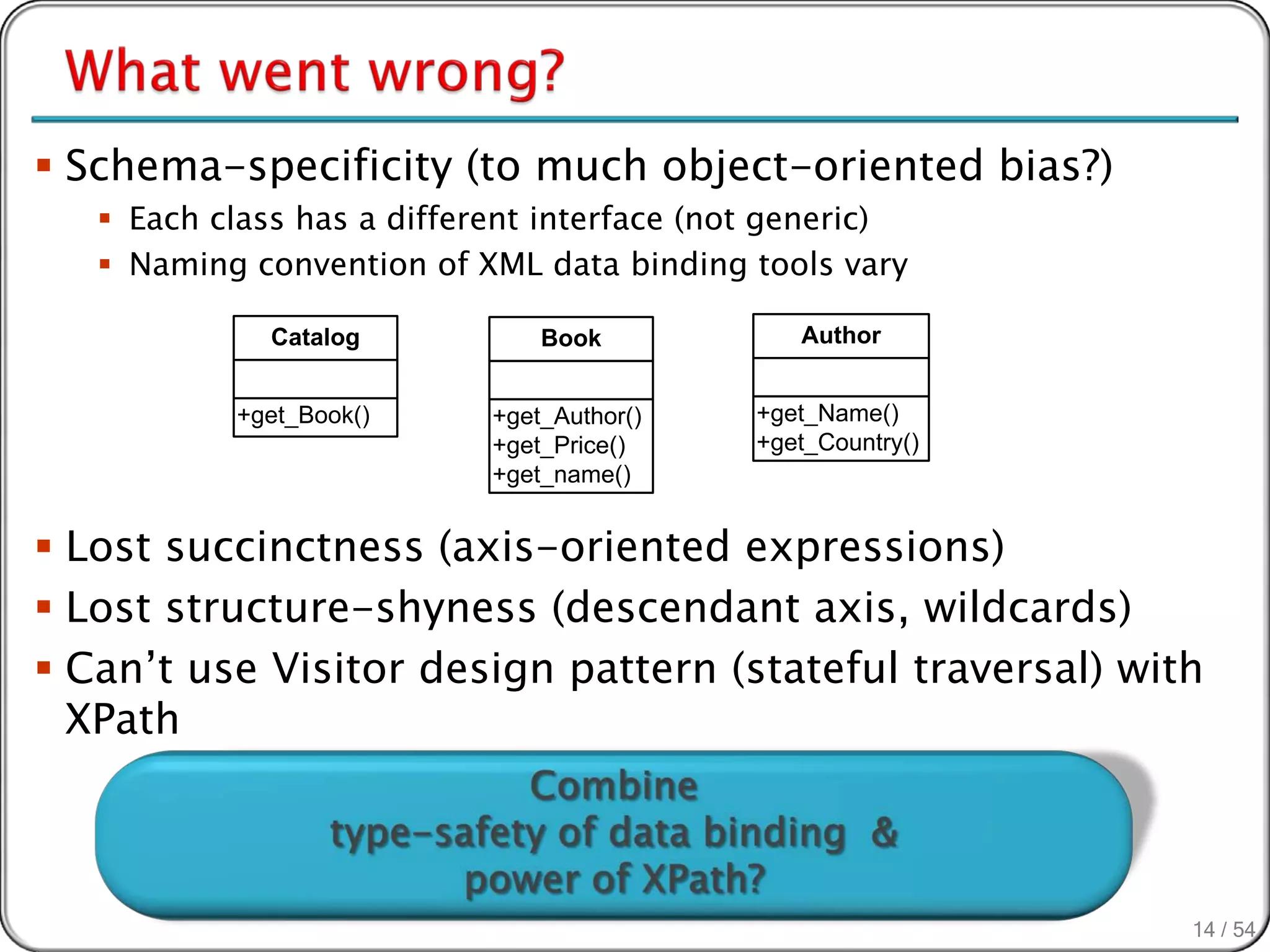
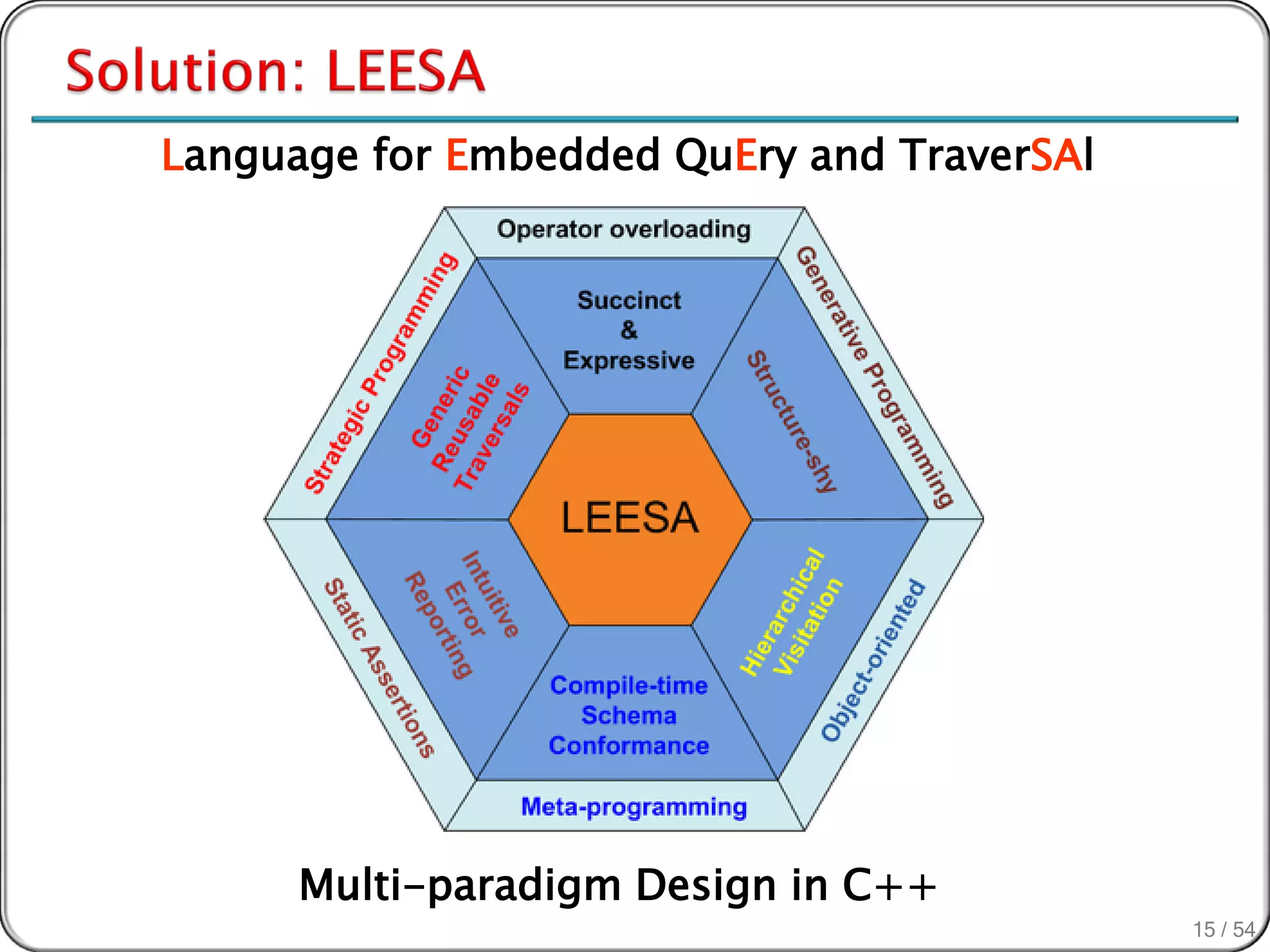
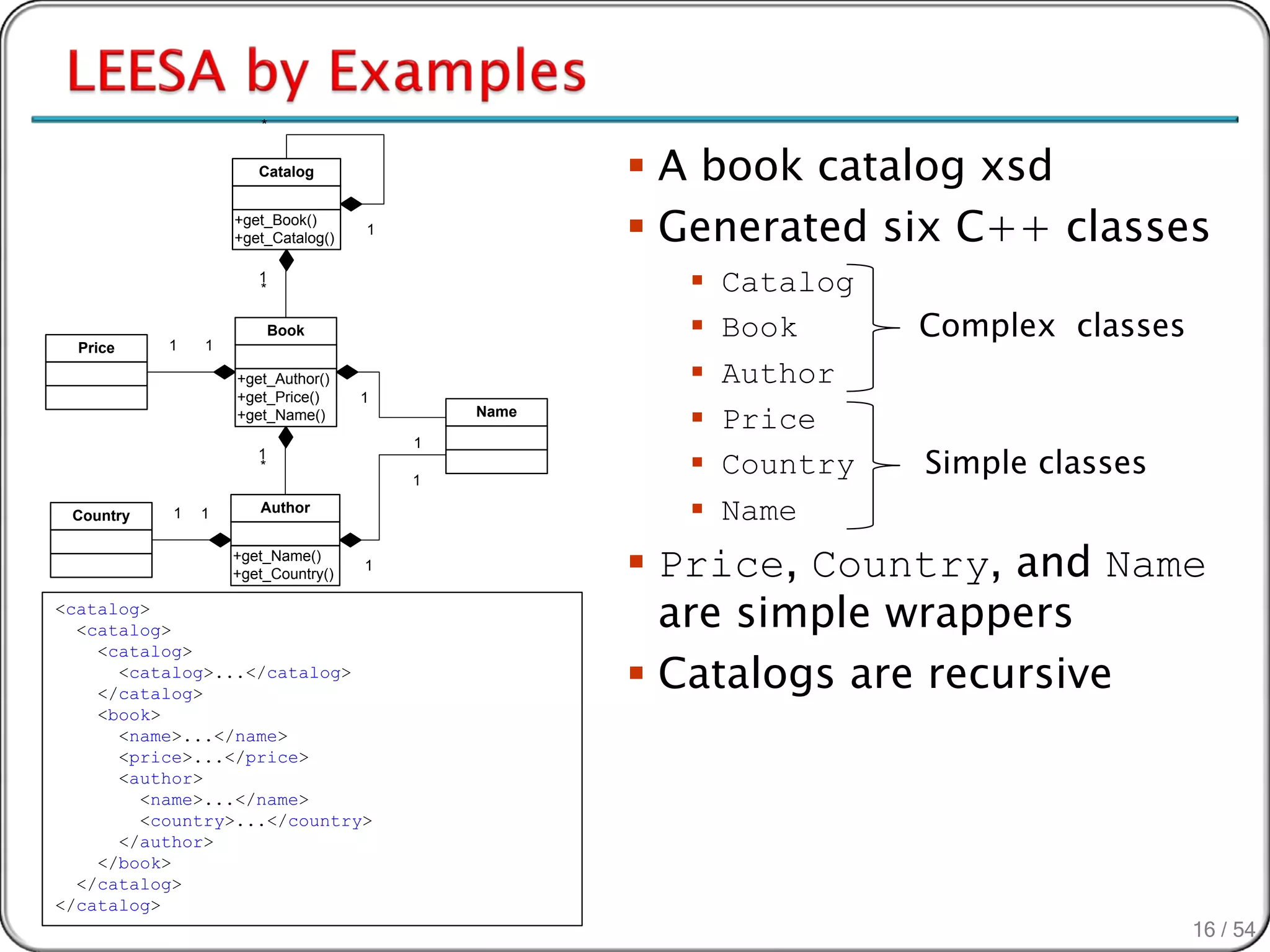
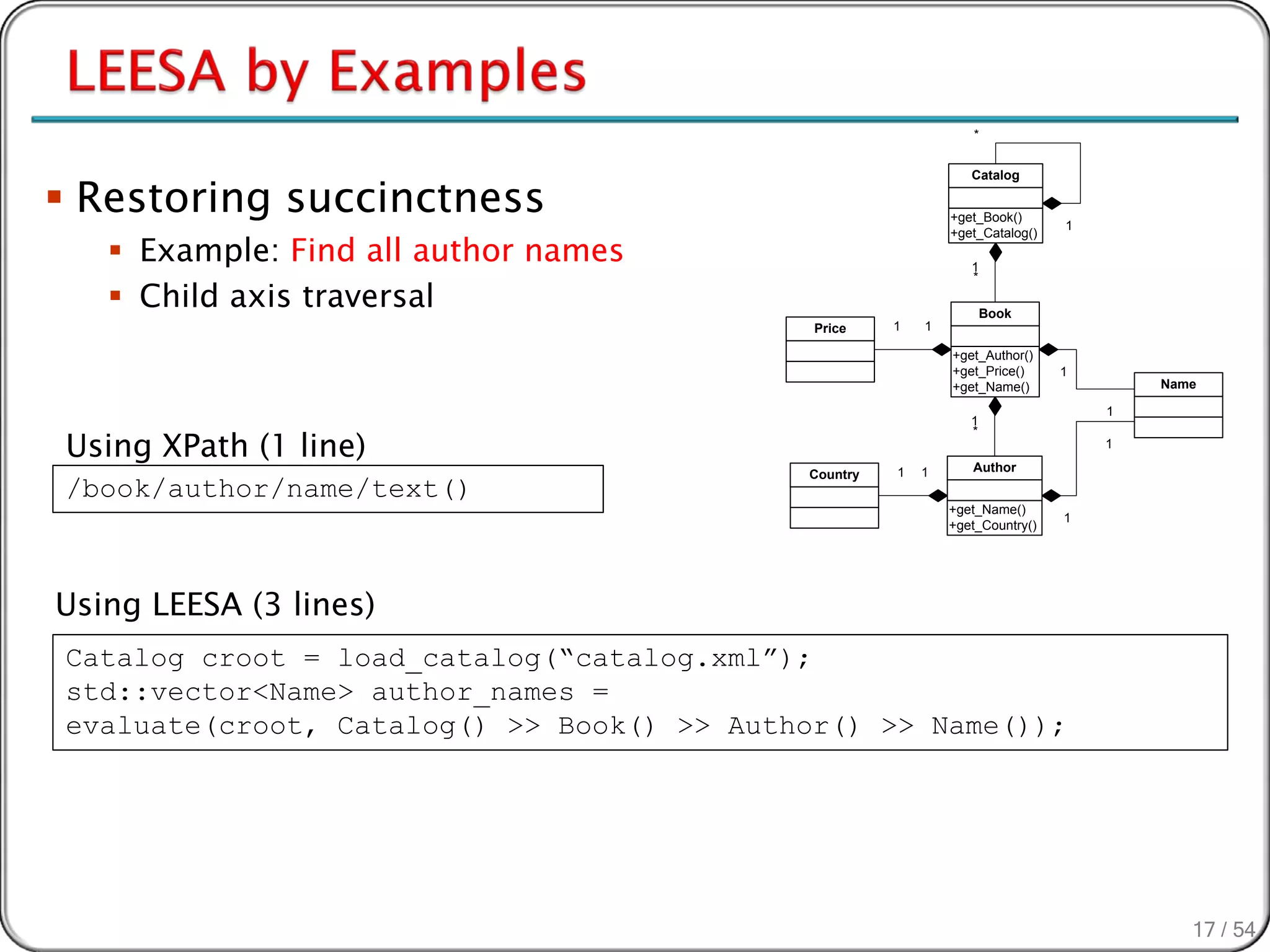
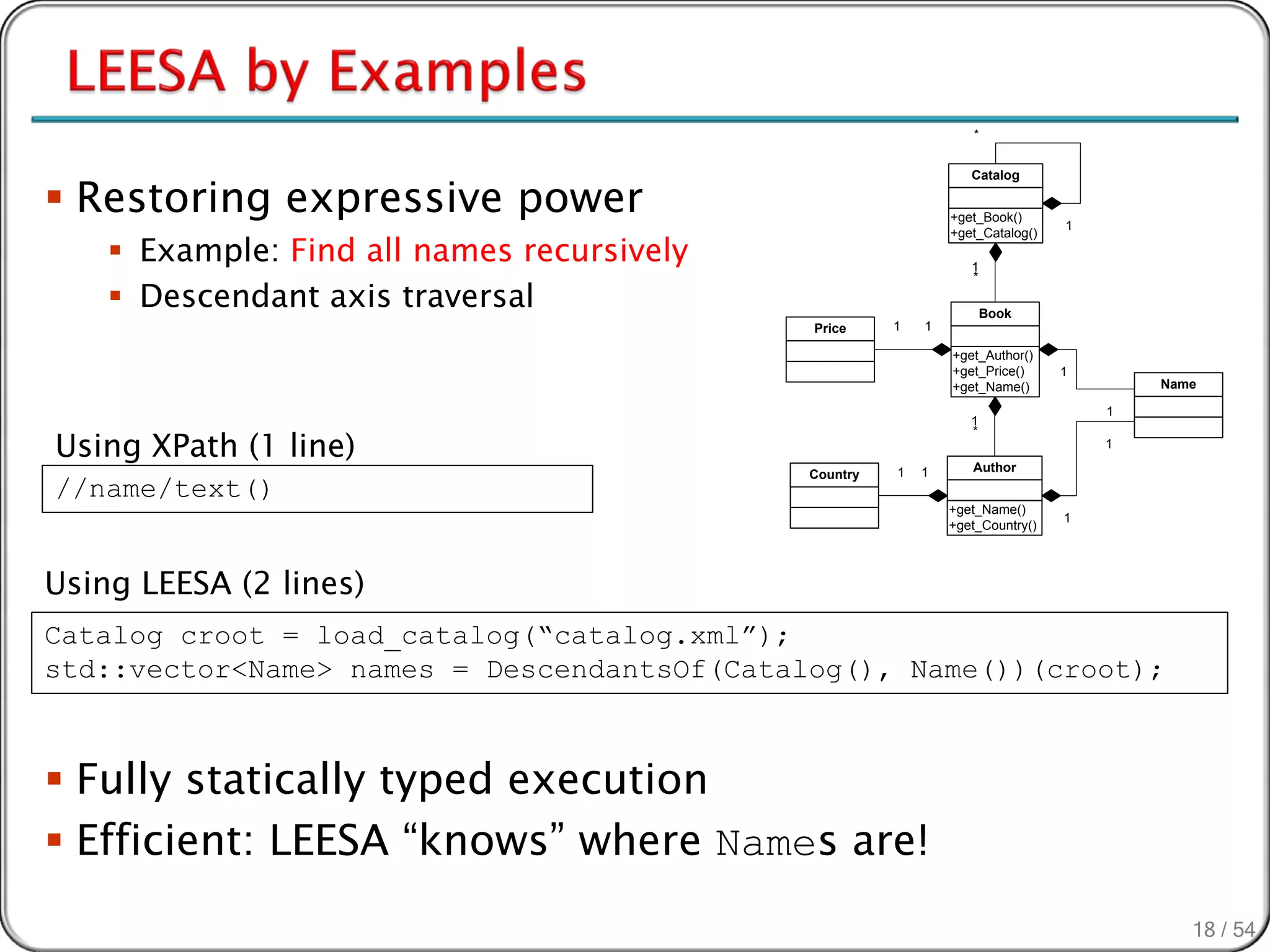
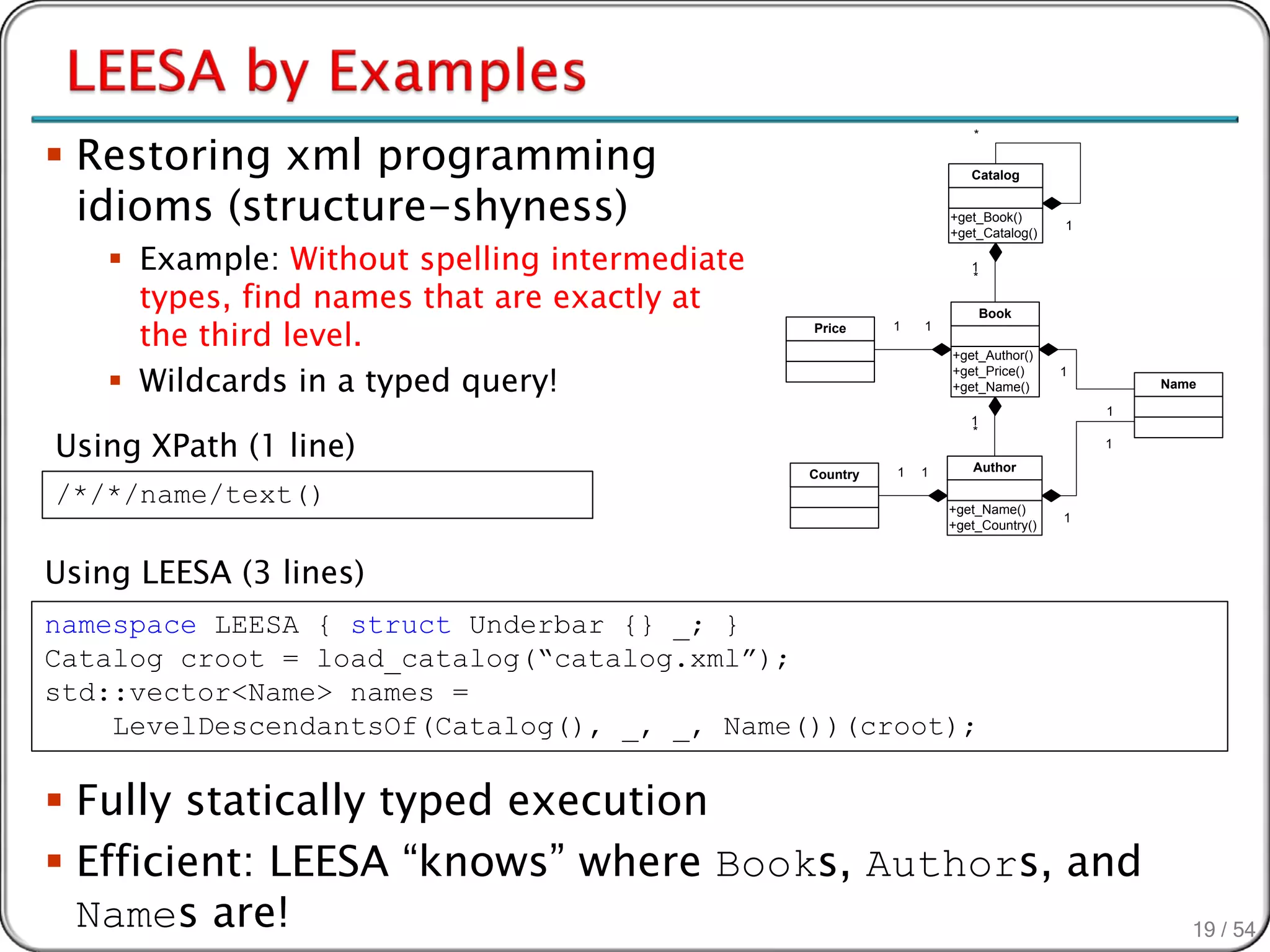
![*
User-defined filters Catalog
Example: Find names of authors from +get_Book()
+get_Catalog()
1
Country == USA 1
*
Basically unary functors Book
1 1
Supports free functions, function
Price
+get_Author()
objects, boost::bind, C++0x lambda
+get_Price() 1
+get_Name() Name
1
1
*
1
1 1 Author
Country
+get_Name()
1
Using XPath (1 line)
+get_Country()
//author[country/text() = ‘USA’]/name/text()
Using LEESA (6 lines)
Catalog croot = load_catalog(“catalog.xml”);
std::vector<Name> author_names = evaluate(croot,
Catalog()
>> DescendantsOf(Catalog(), Author())
>> Select(Author(), [](const Author &a) { return a.get_Country() == “USA"; })
>> Name());
20 / 54](https://image.slidesharecdn.com/leesa-boostcon-111130135930-phpapp01/75/Native-XML-processing-in-C-BoostCon-11-20-2048.jpg)
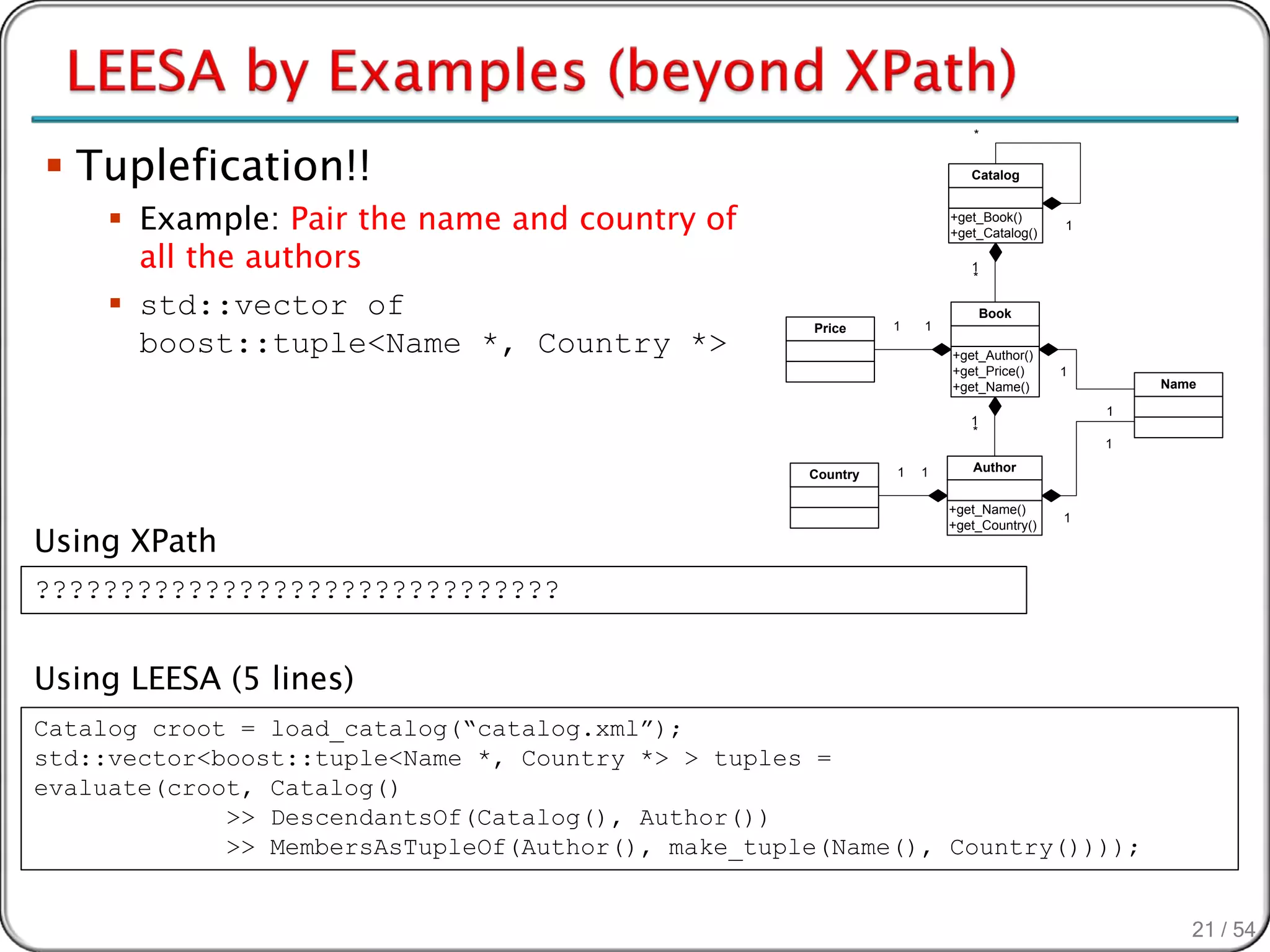
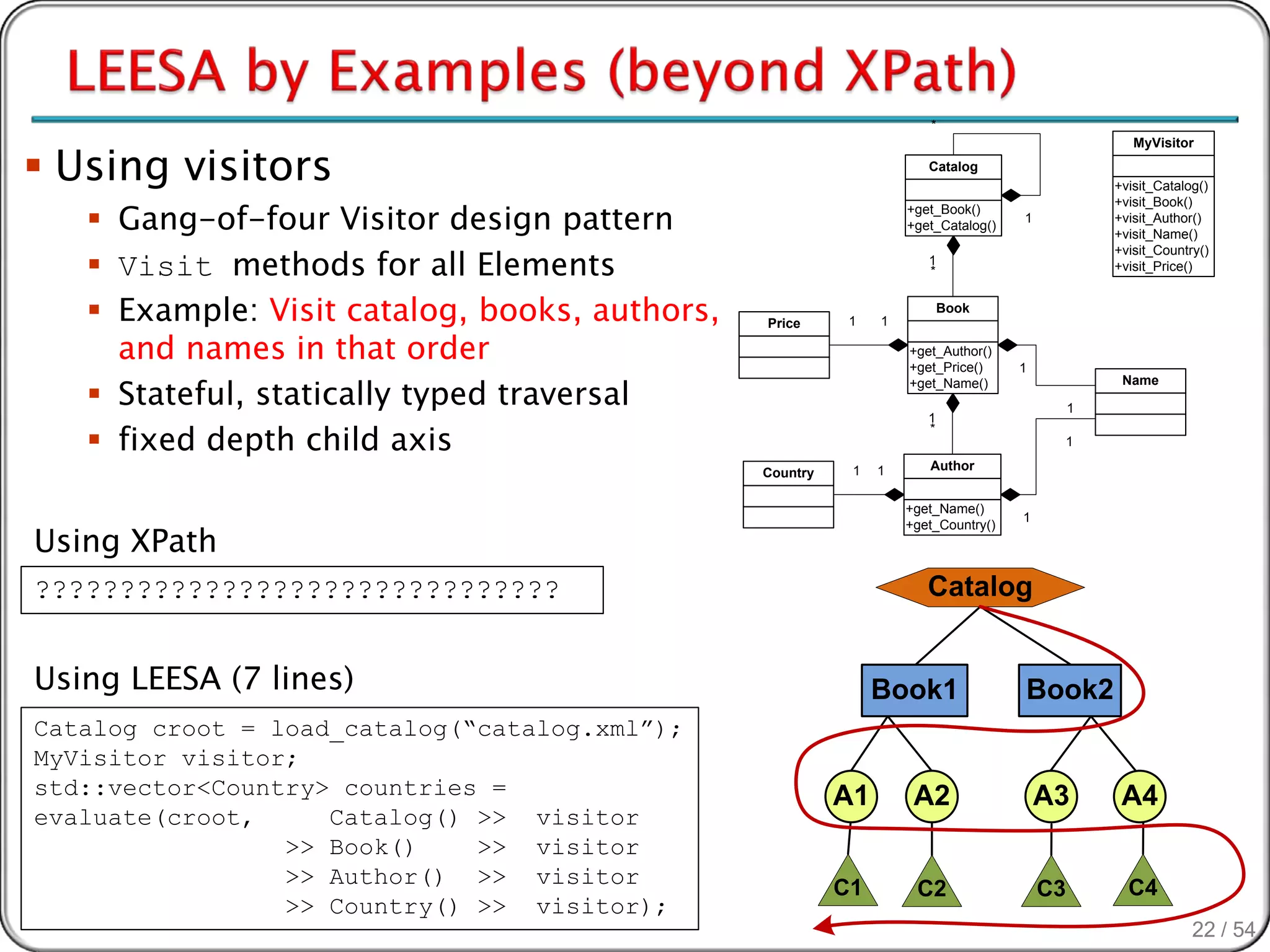
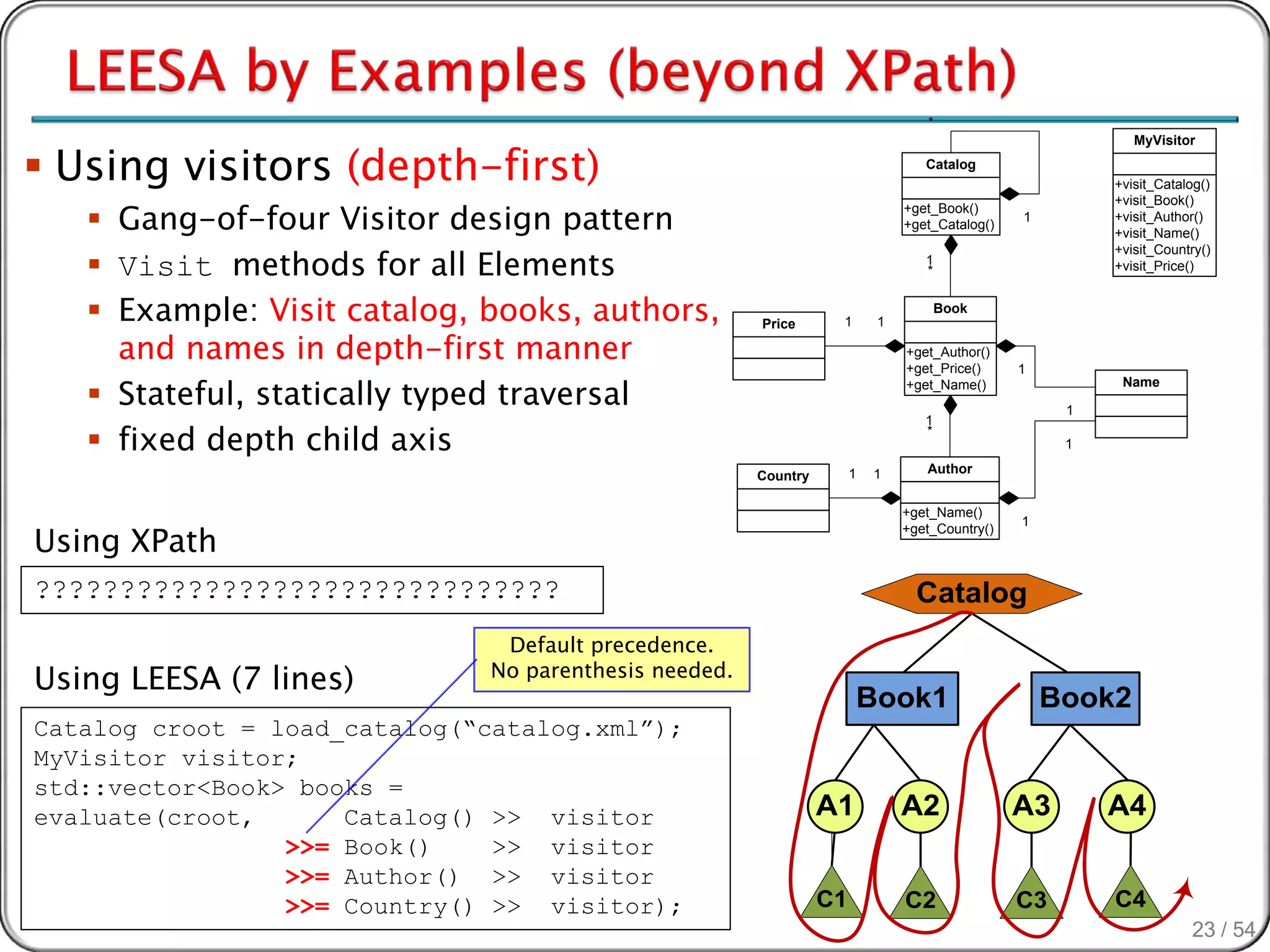
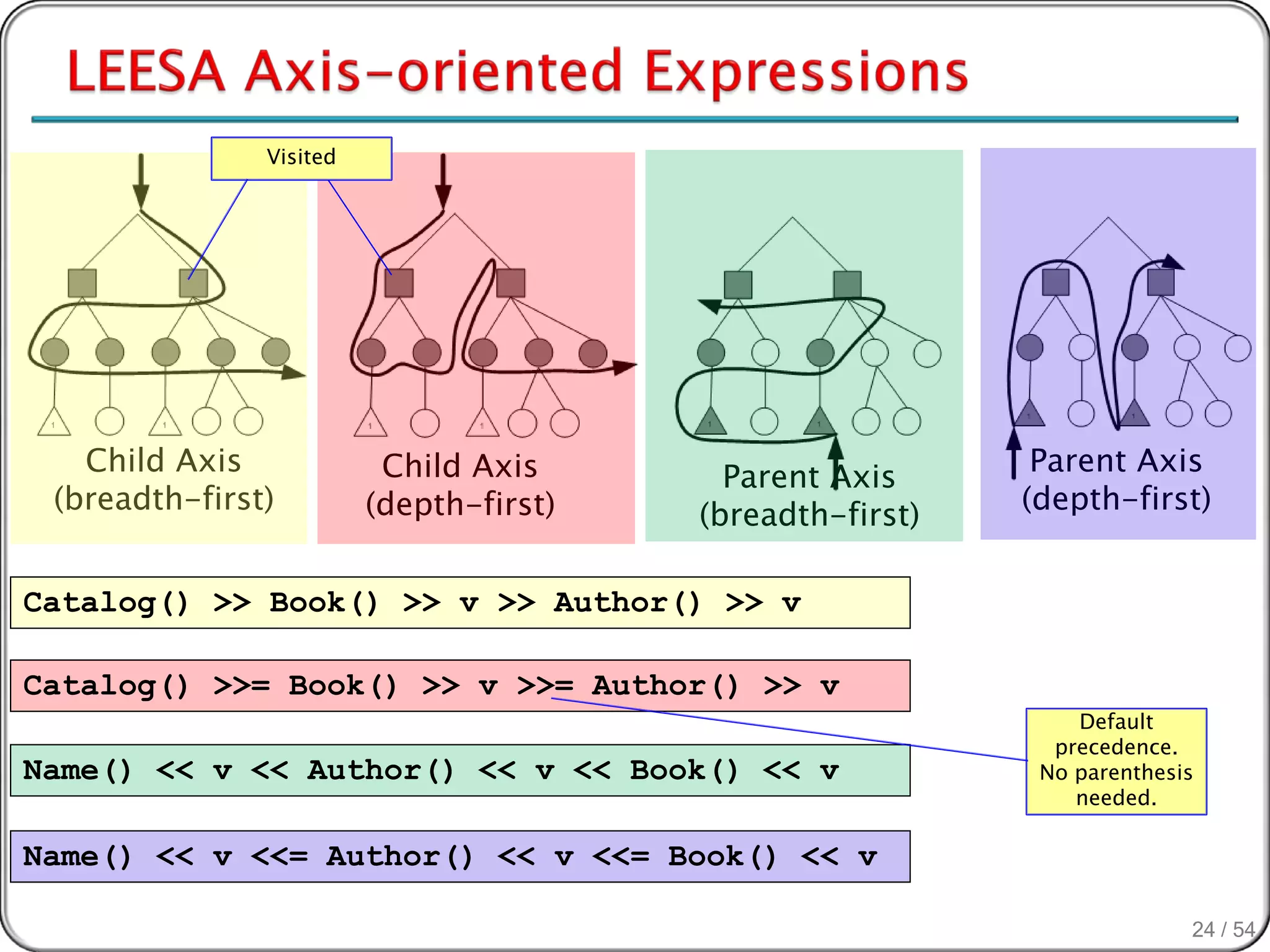

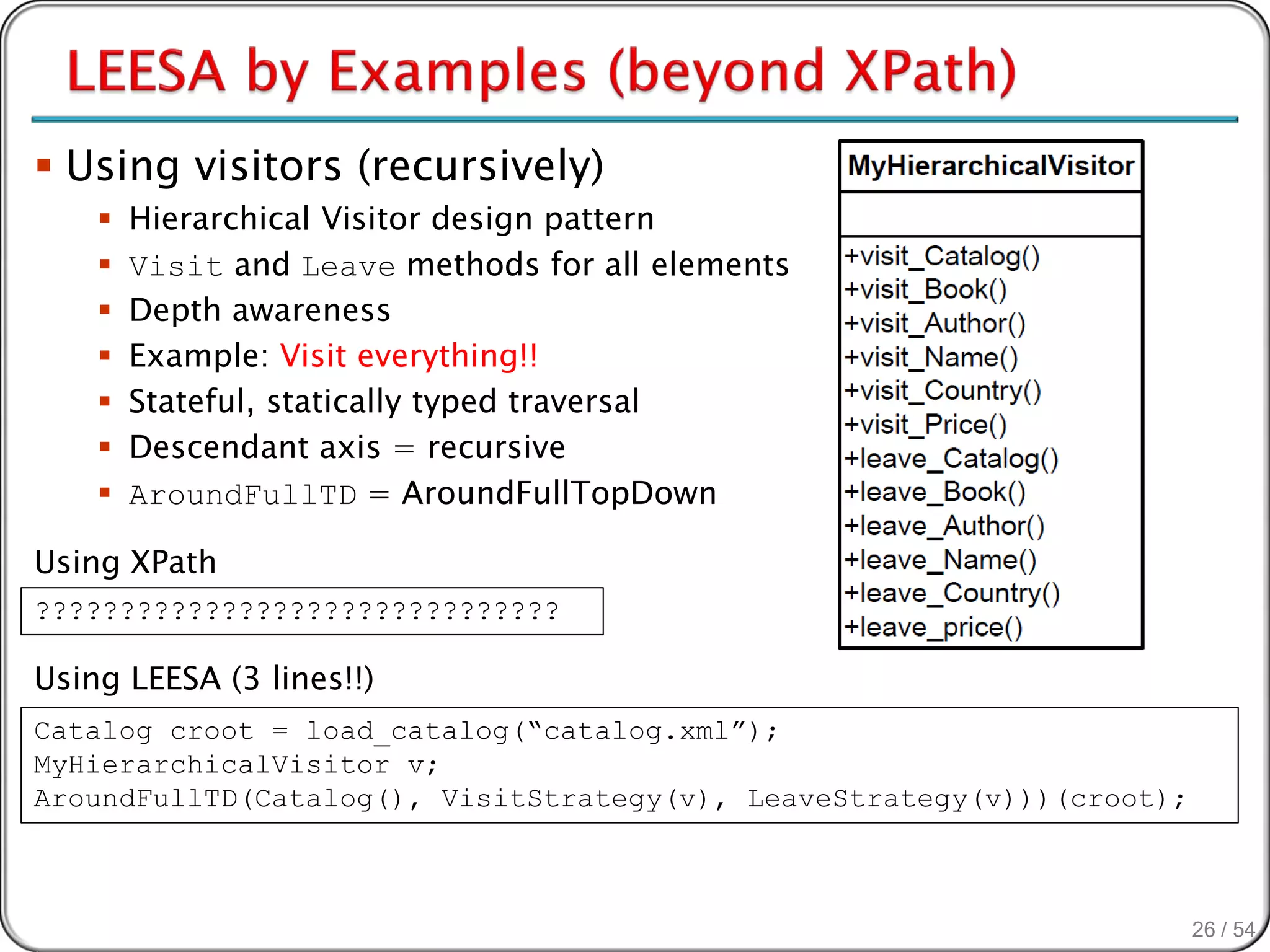
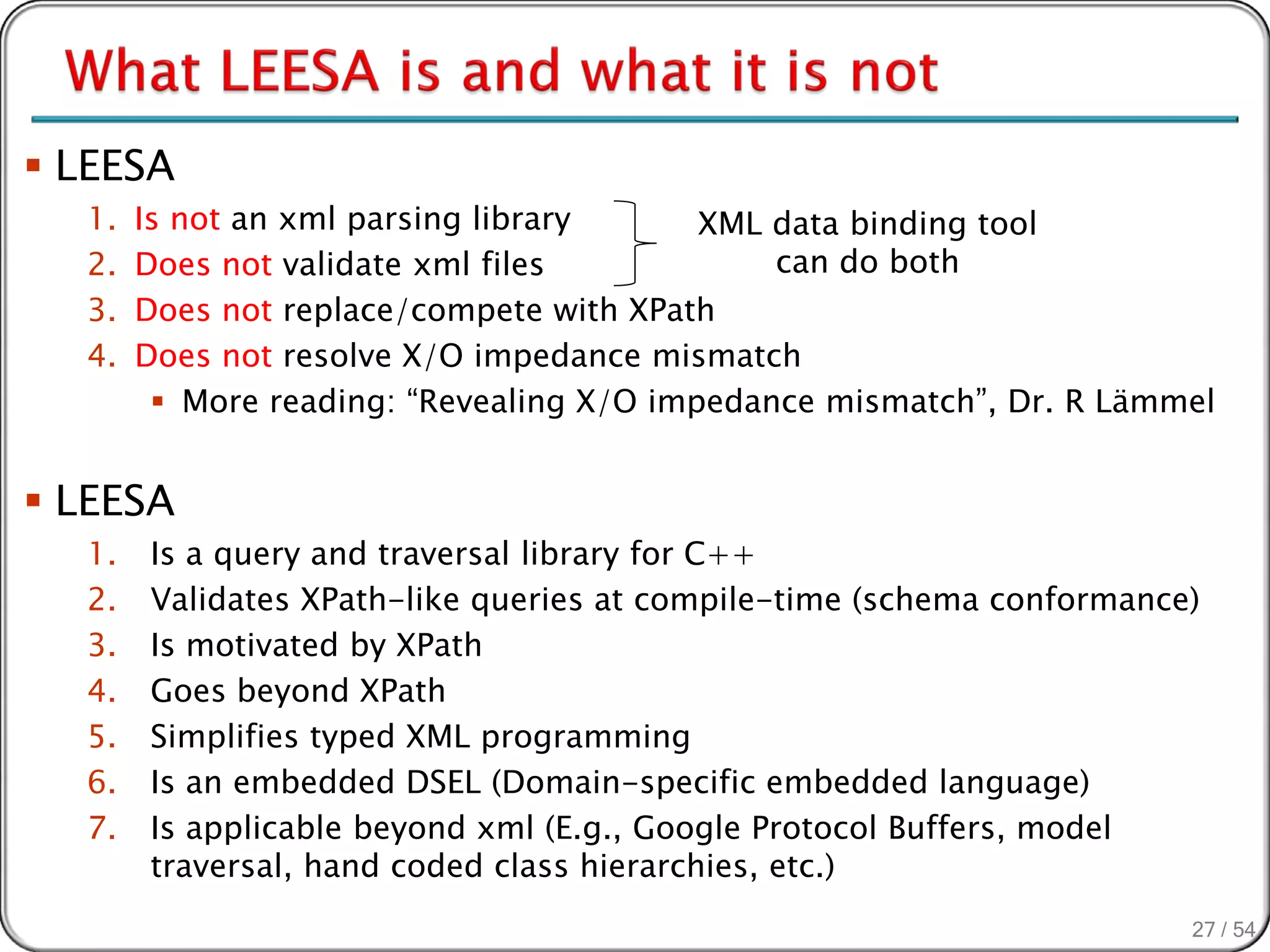
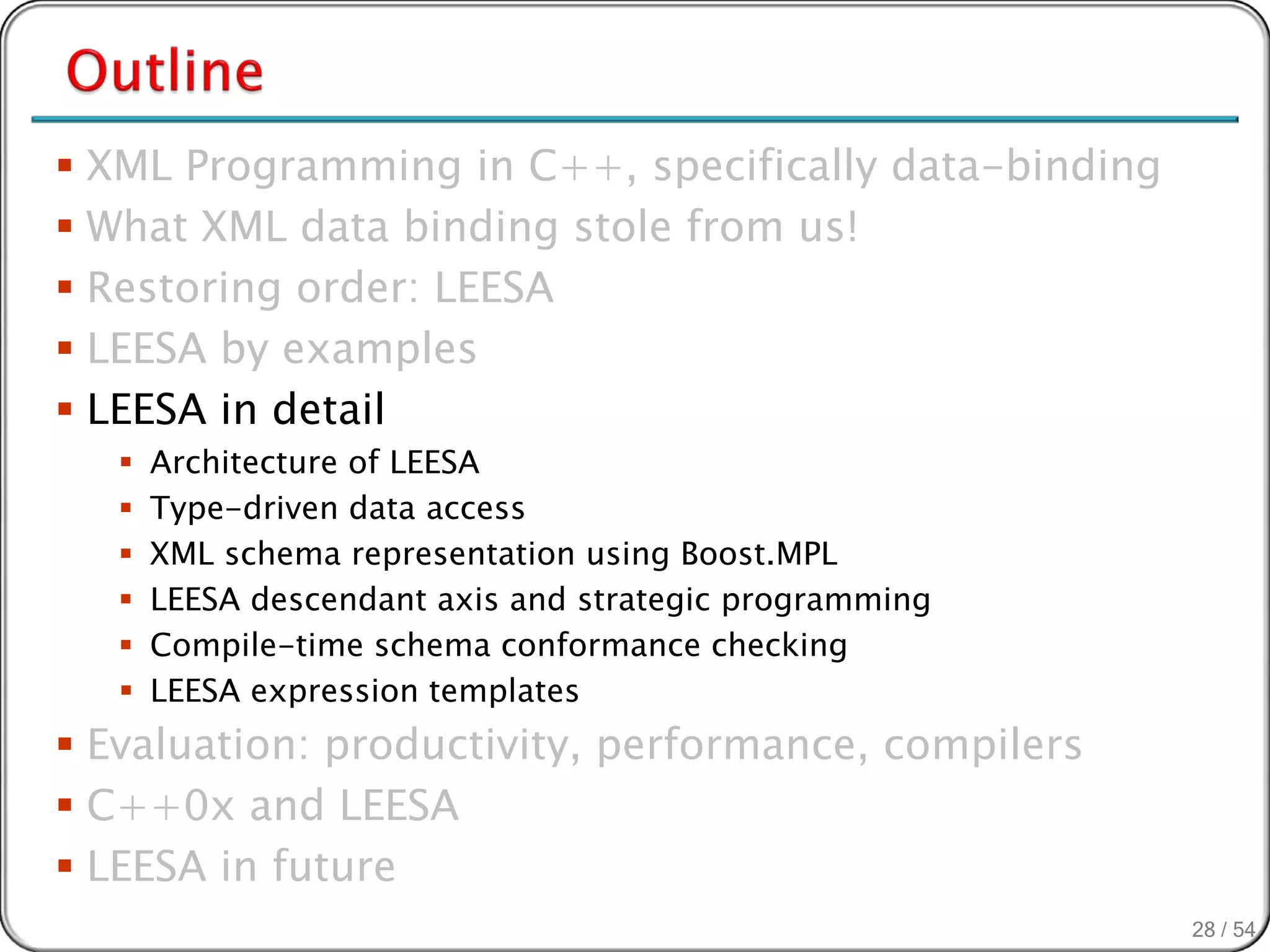
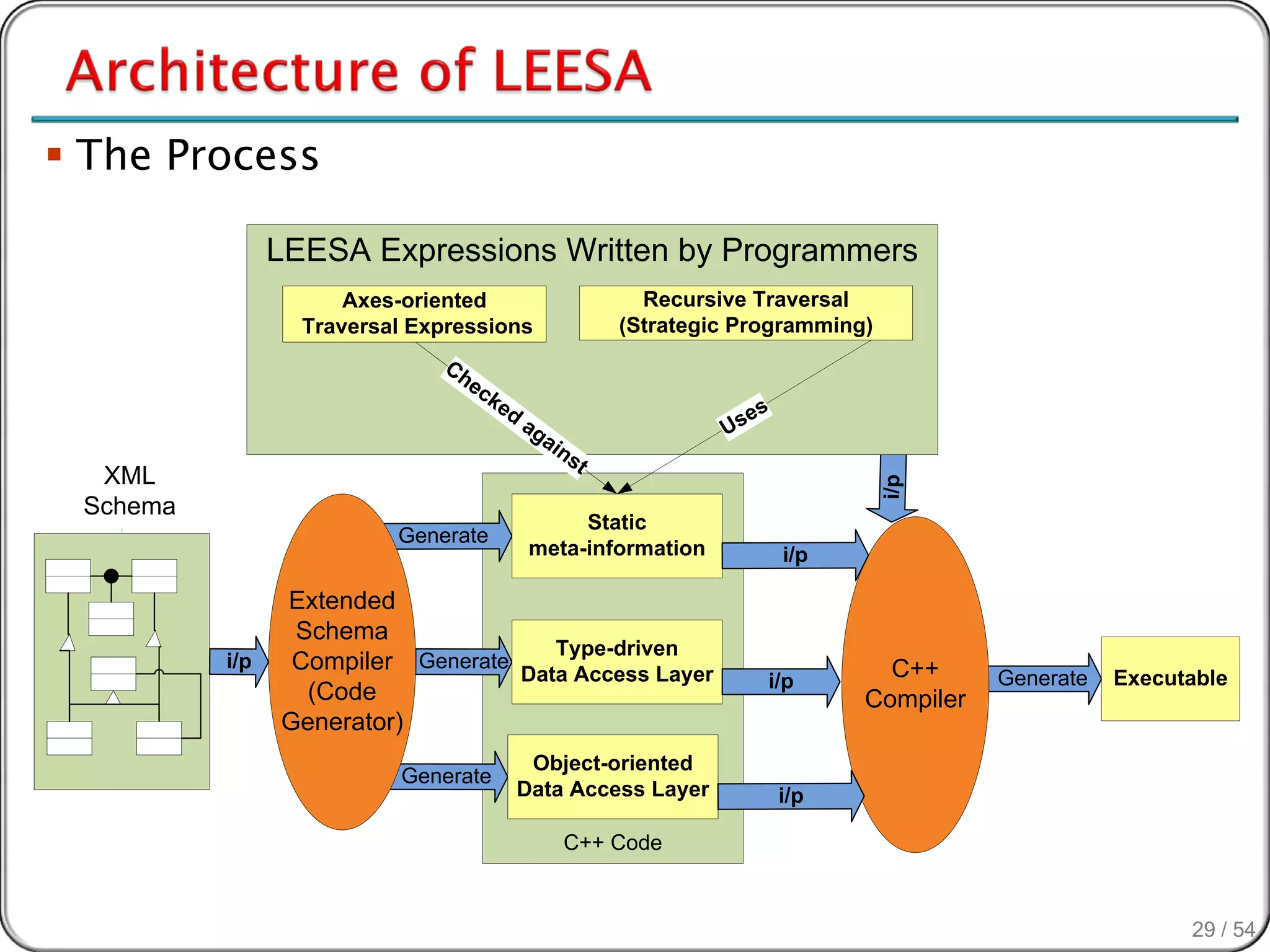
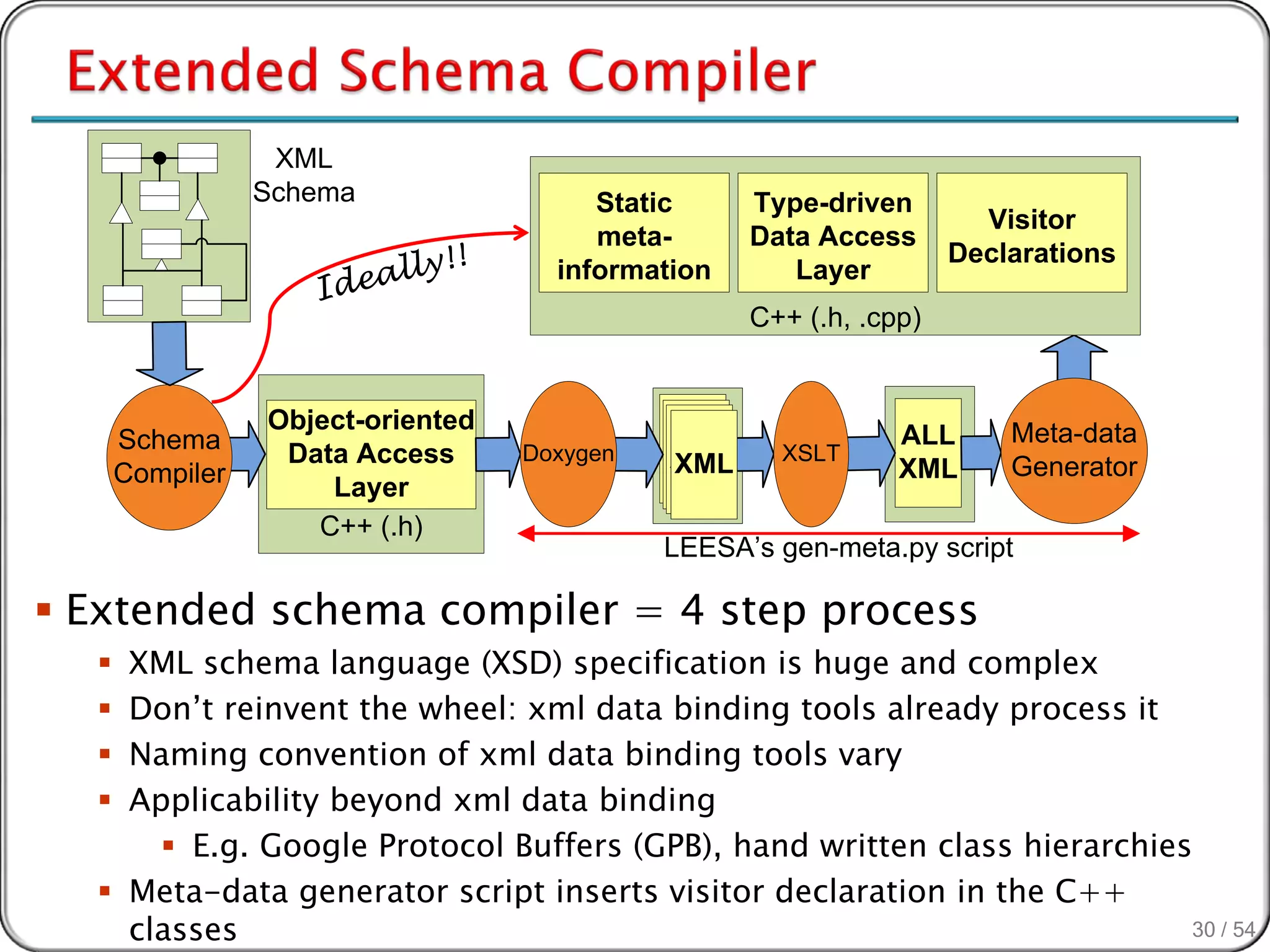

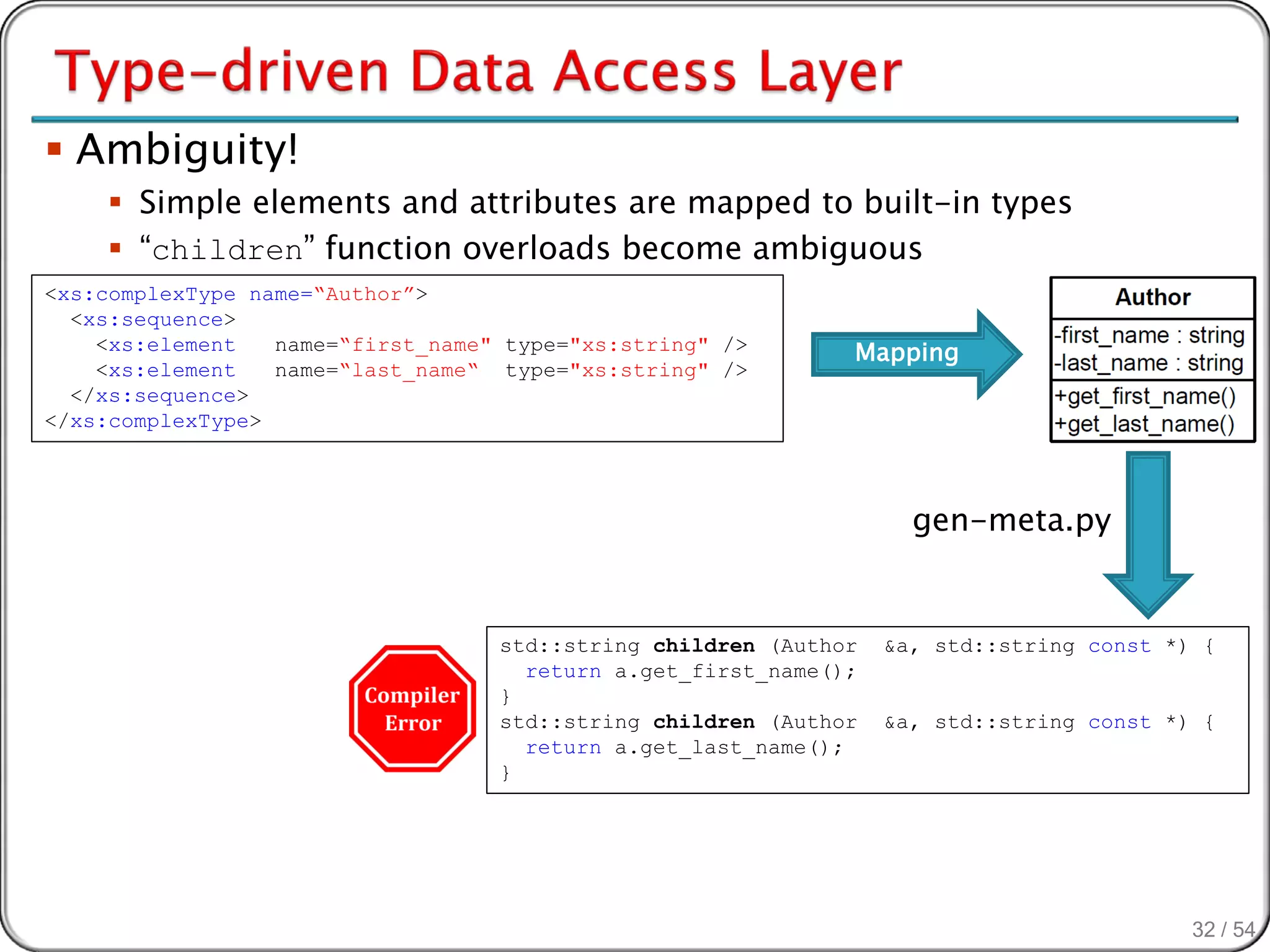
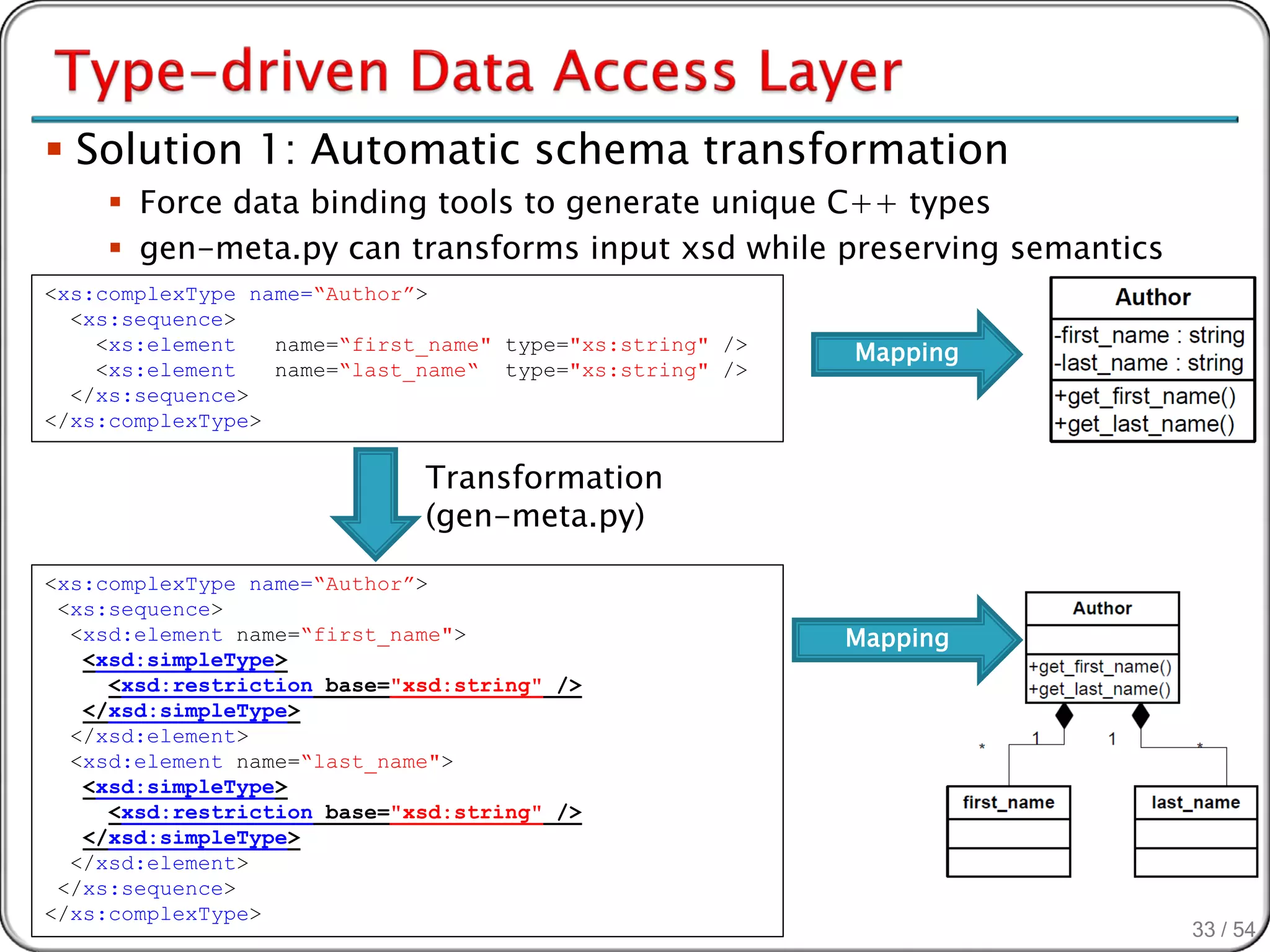
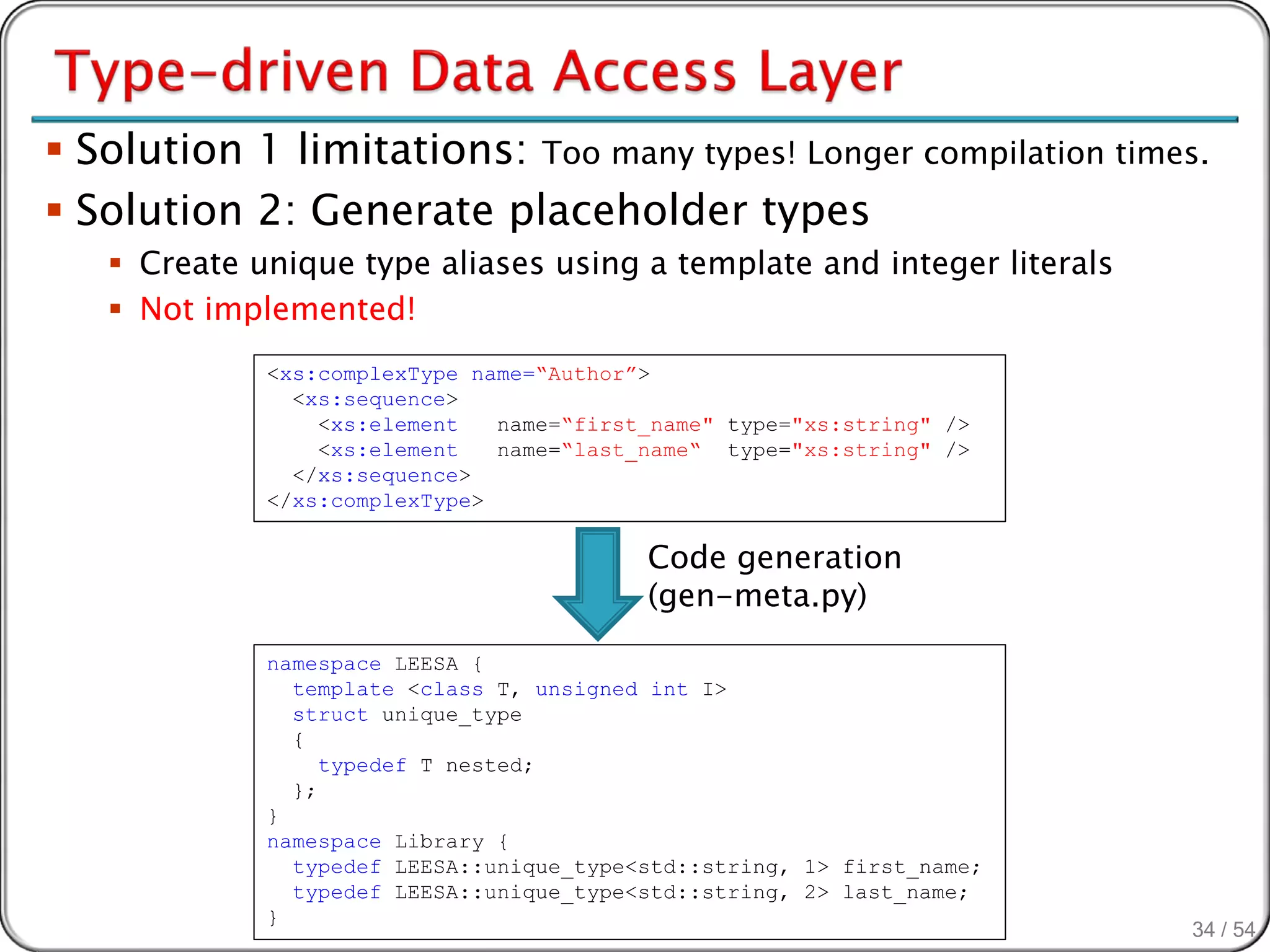
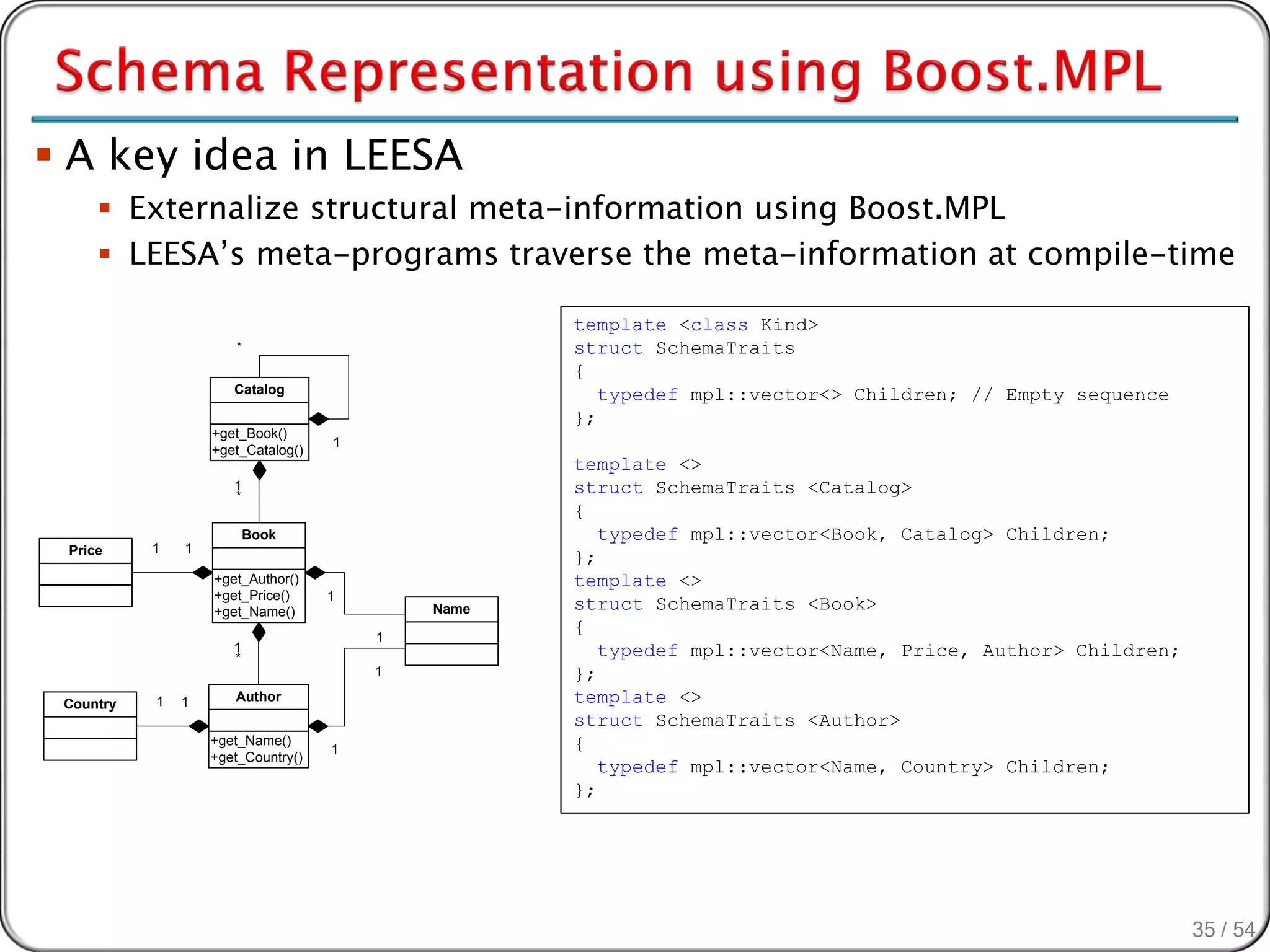

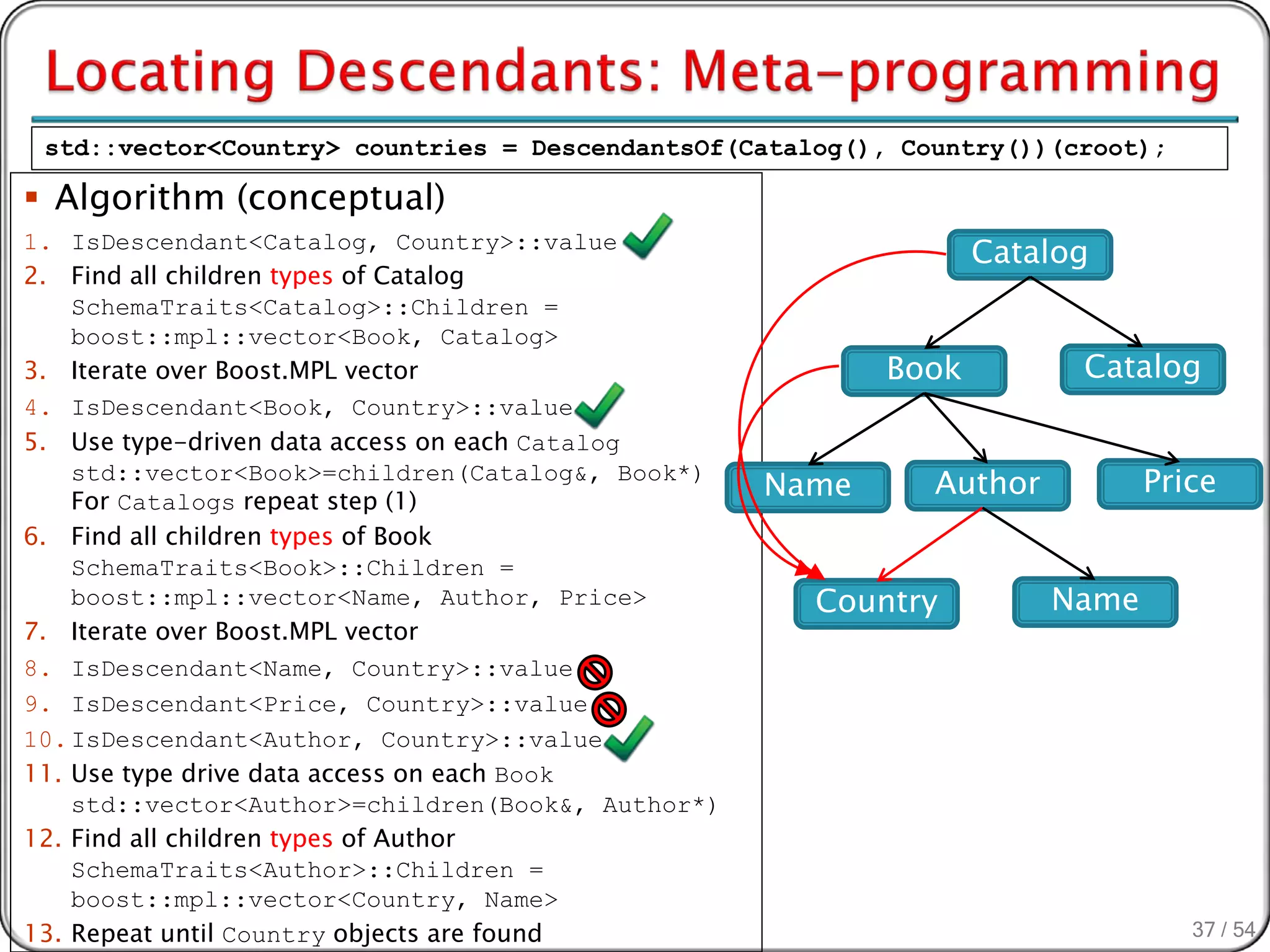
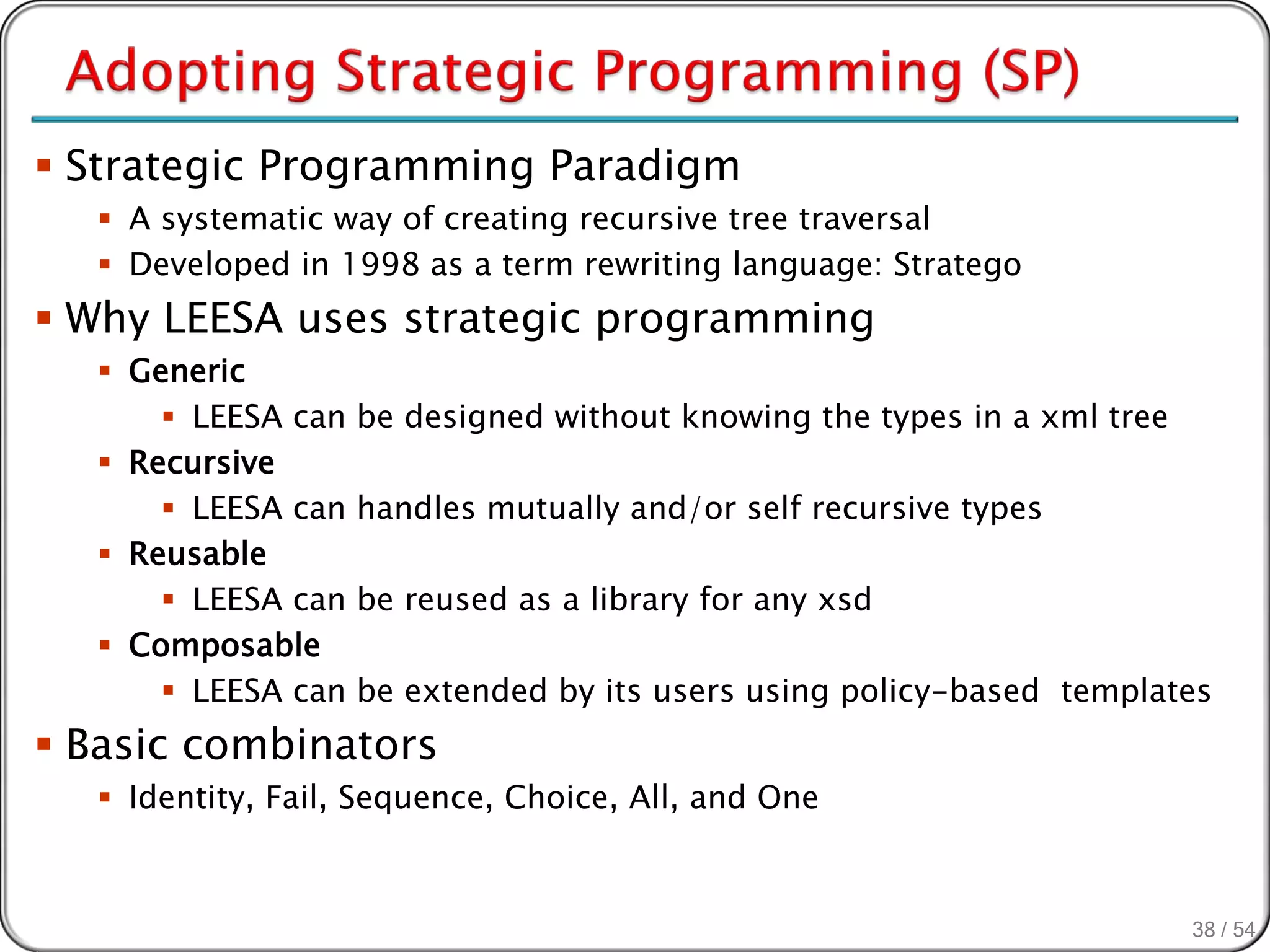
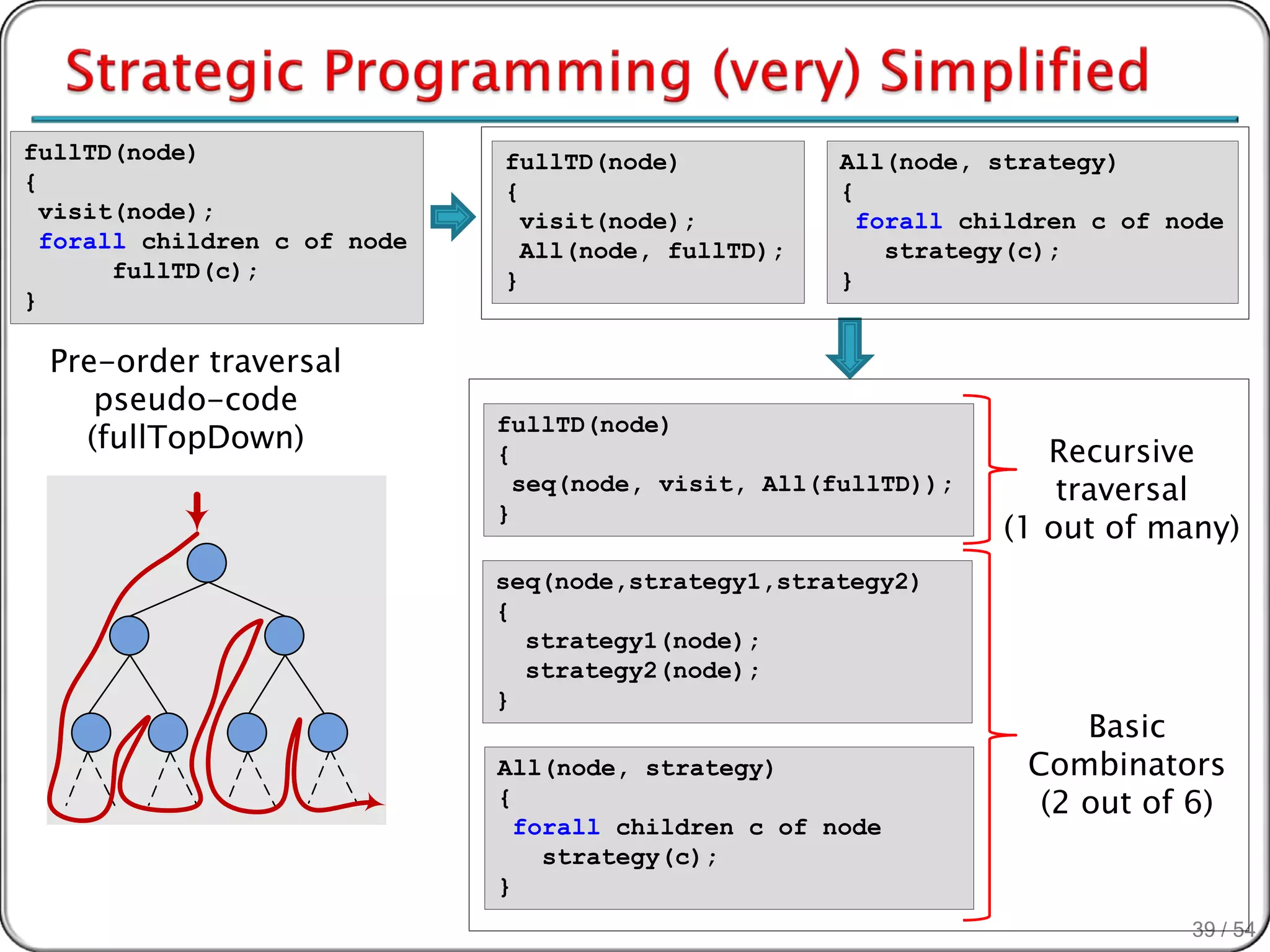
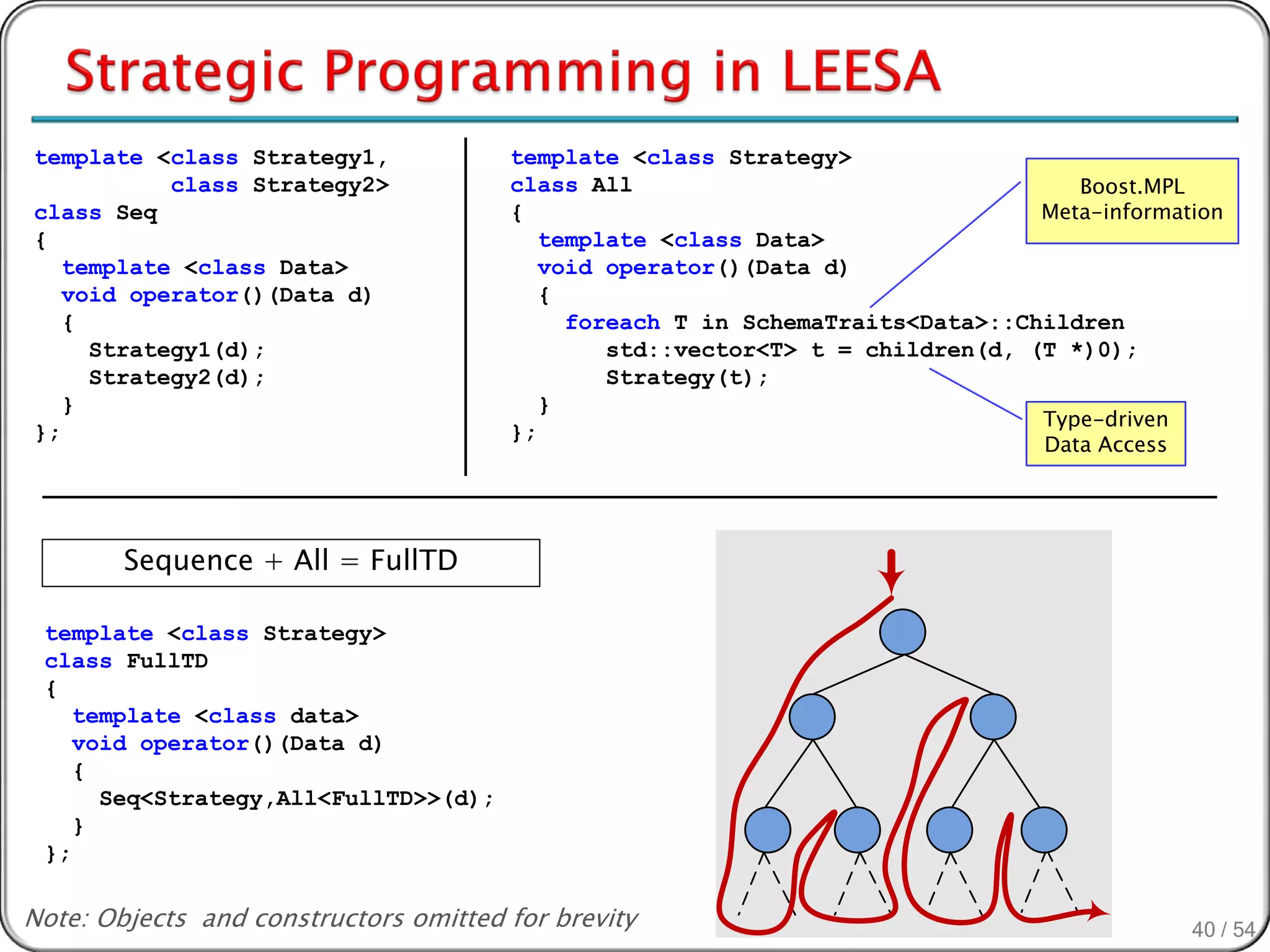
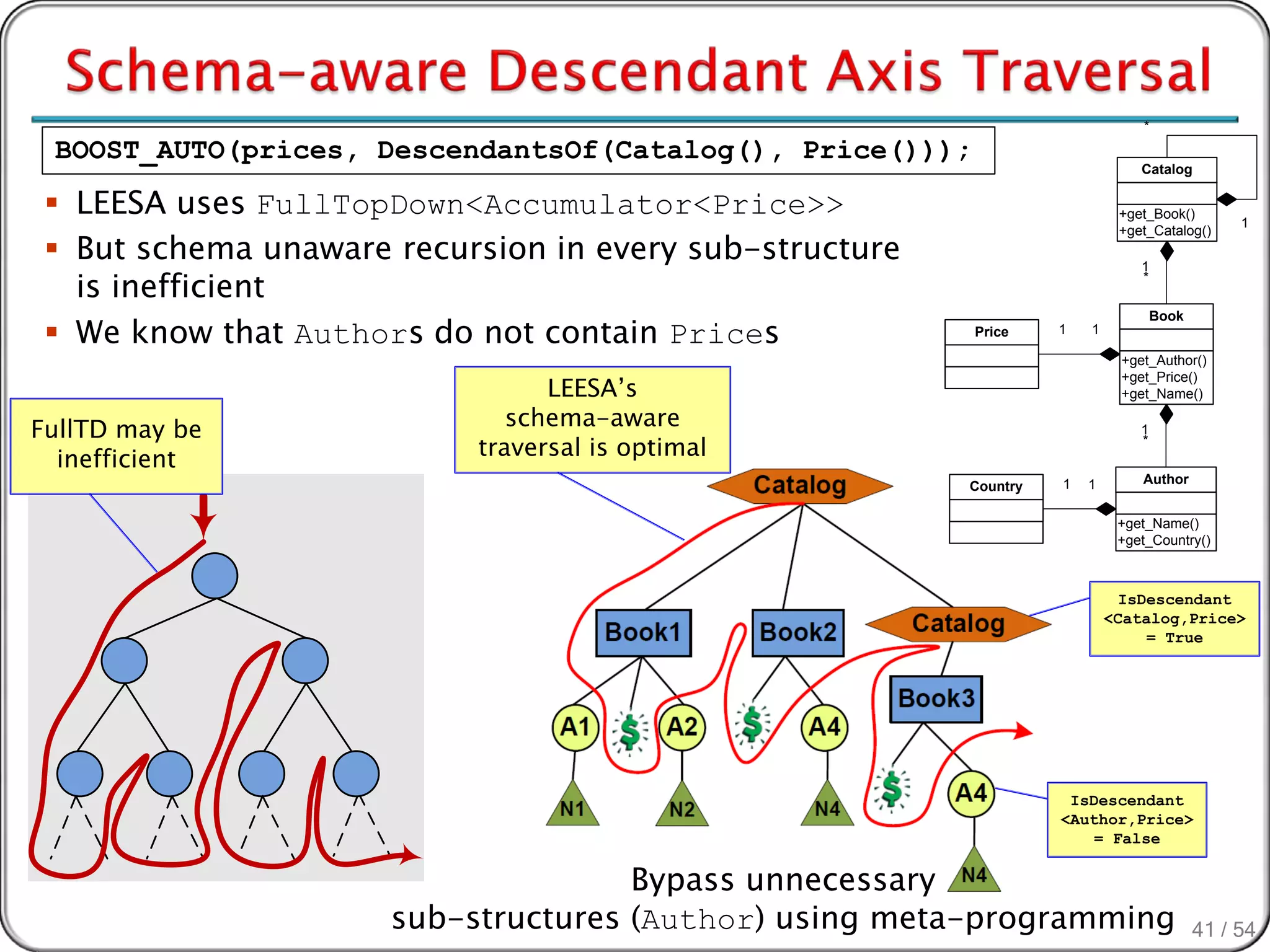
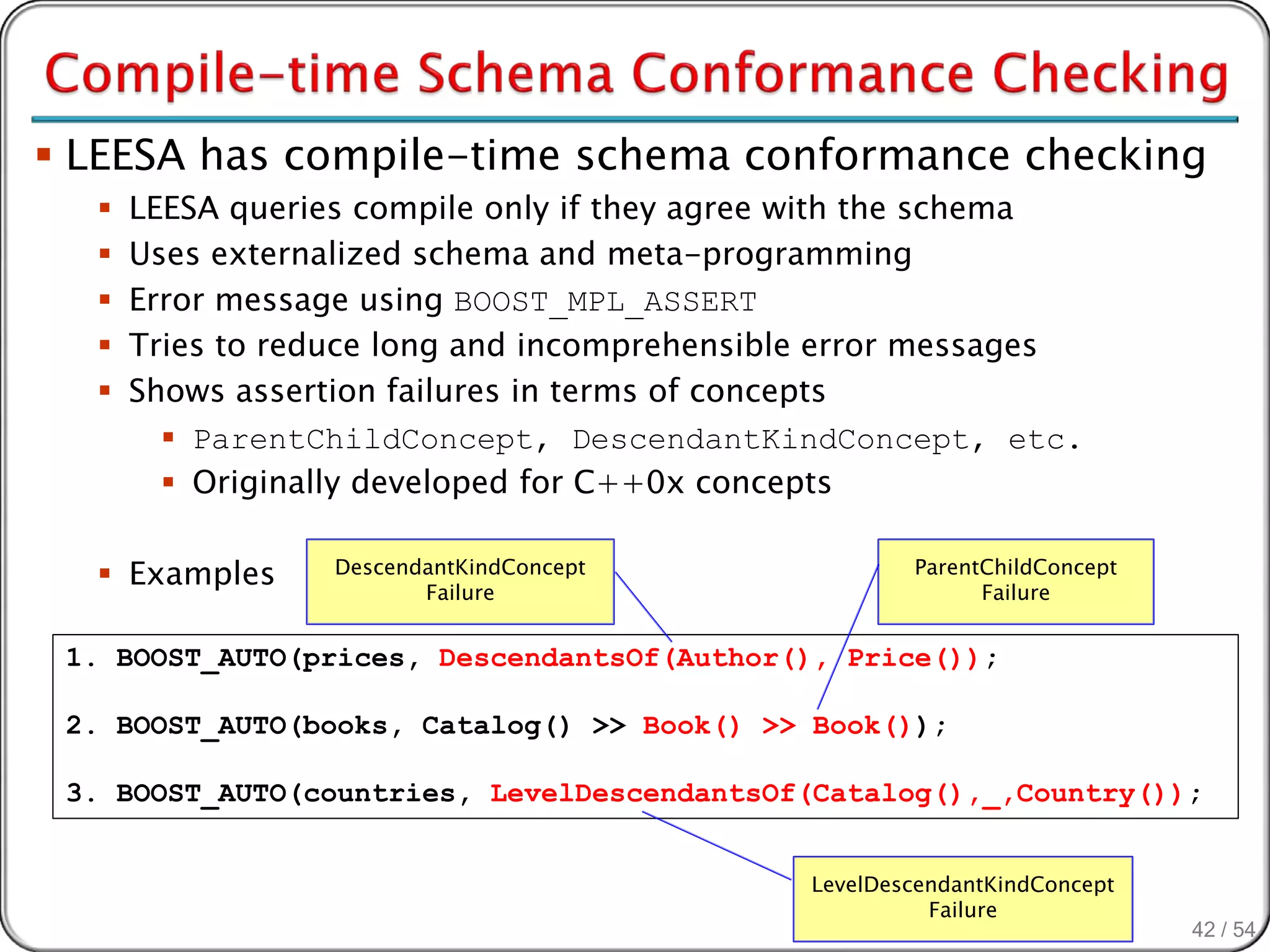
![ Country is at least 2 “steps” away from a Catalog
LevelDescendantsOf(Catalog(),_,Country());
1>------ Build started: Project: library, Configuration: Release Win32 ------
1> driver.cxx
1> using native typeof
1>C:mySVNLEESAincludeLEESA/SP_Accumulation.cpp(112): error C2664: 'boost::mpl::assertion_failed' : cannot convert
parameter 1 from 'boost::mpl::failed
************LEESA::LevelDescendantKindConcept<ParentKind,DescendantKind,SkipCount,Custom>::* ***********' to
'boost::mpl::assert<false>::type'
1> with
1> [
1> ParentKind=library::Catalog,
1> DescendantKind=library::Country,
1> SkipCount=1,
1> Custom=LEESA::Default
1> ]
1> No constructor could take the source type, or constructor overload resolution was ambiguous
1> driver.cxx(155) : see reference to class template instantiation
'LEESA::LevelDescendantsOp<Ancestor,Descendant,SkipCount,Custom>' being compiled
1> with
1> [
1> Ancestor=LEESA::Carrier<library::Catalog>,
1> Descendant=LEESA::Carrier<library::Country>,
1> SkipCount=1,
1> Custom=LEESA::Default
1> ]
1>C:mySVNLEESAincludeLEESA/SP_Accumulation.cpp(112): error C2866:
'LEESA::LevelDescendantsOp<Ancestor,Descendant,SkipCount,Custom>::mpl_assertion_in_line_130' : a const static data member
of a managed type must be initialized at the point of declaration
1> with
1> [
1> Ancestor=LEESA::Carrier<library::Catalog>,
1> Descendant=LEESA::Carrier<library::Country>,
1> SkipCount=1,
1> Custom=LEESA::Default
1> ]
1> Generating Code...
========== Build: 0 succeeded, 1 failed, 0 up-to-date, 0 skipped ========== 43 / 54](https://image.slidesharecdn.com/leesa-boostcon-111130135930-phpapp01/75/Native-XML-processing-in-C-BoostCon-11-43-2048.jpg)
